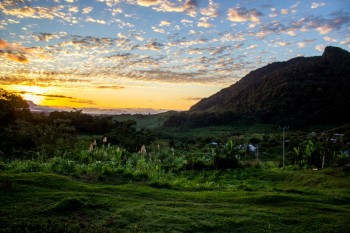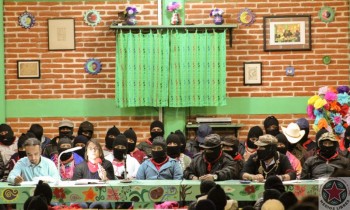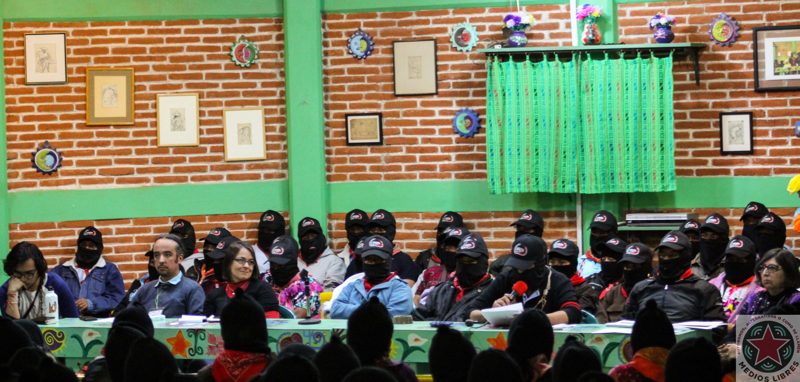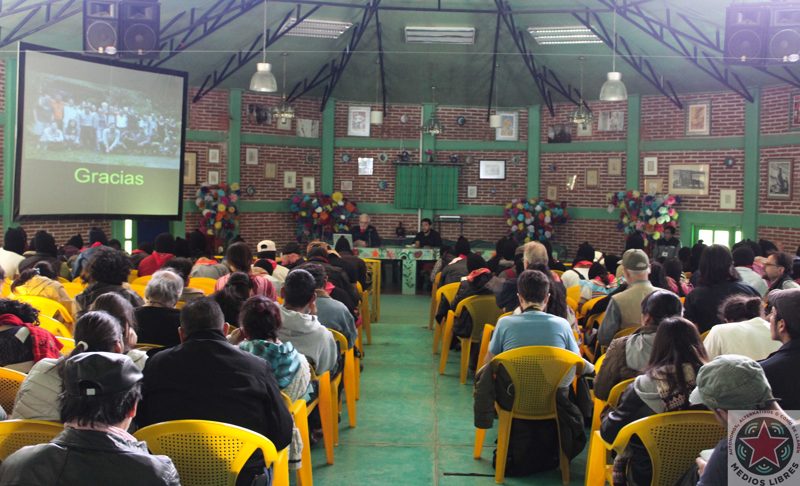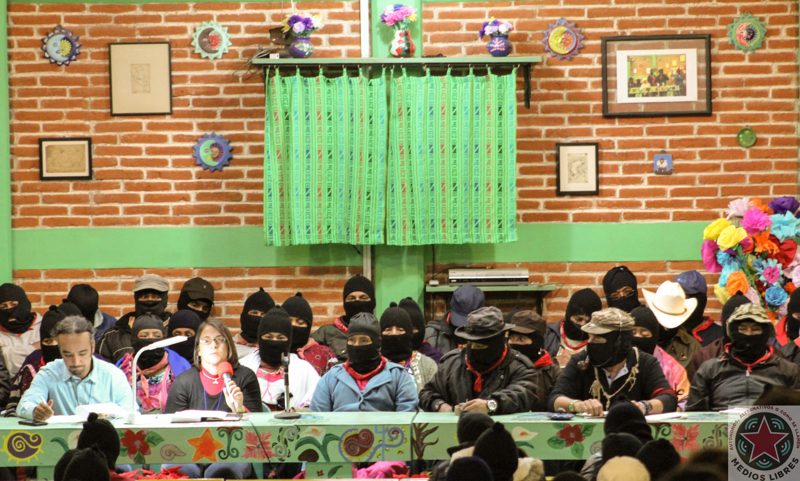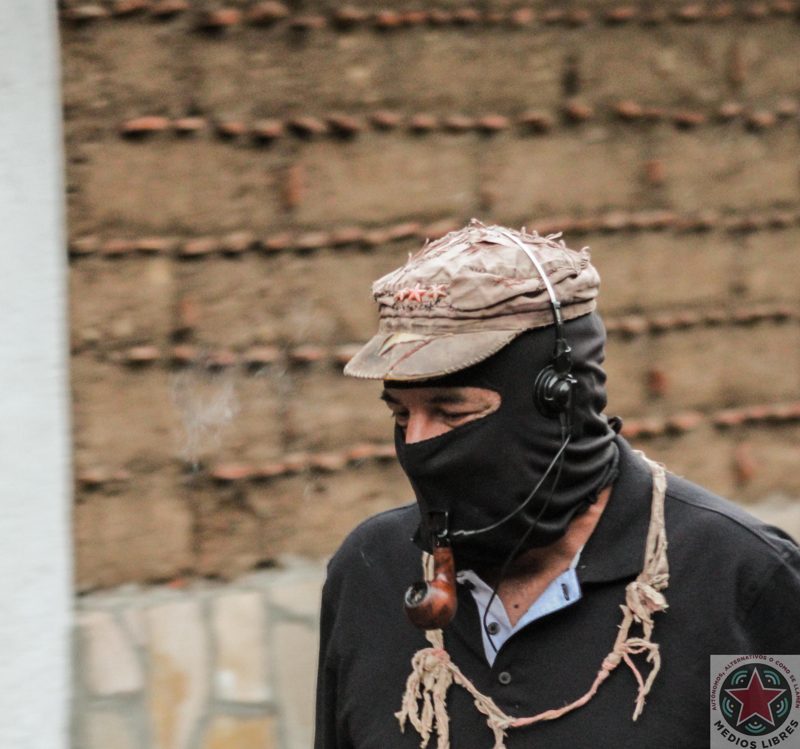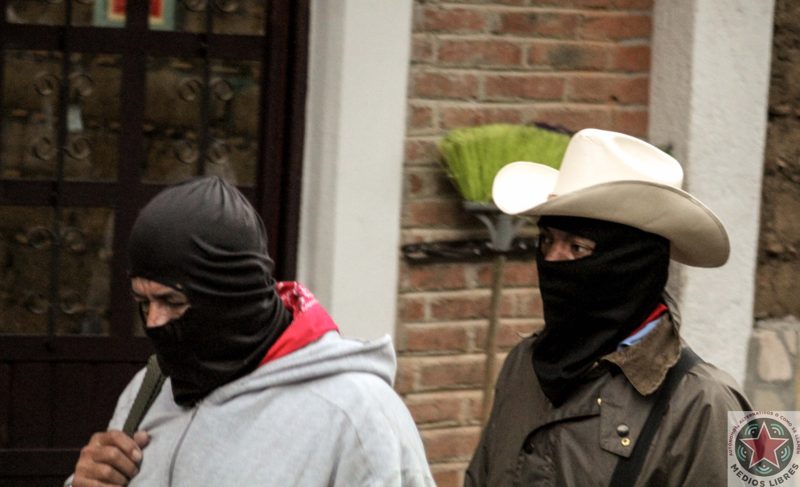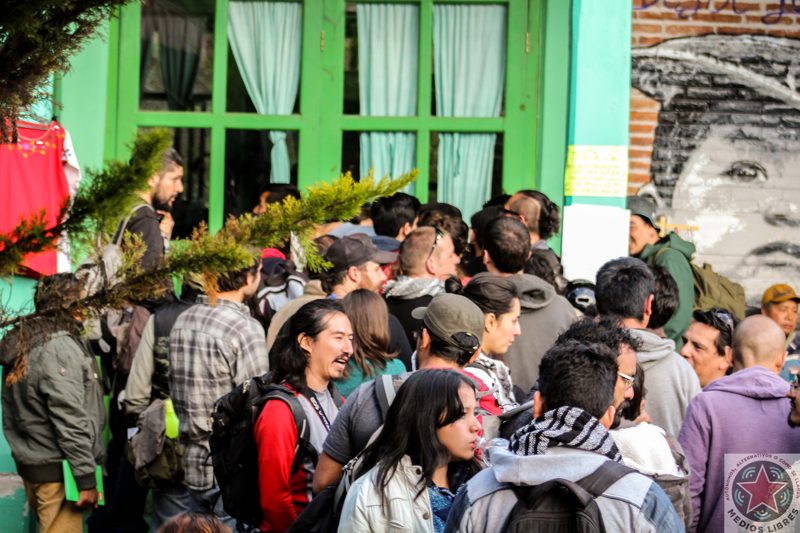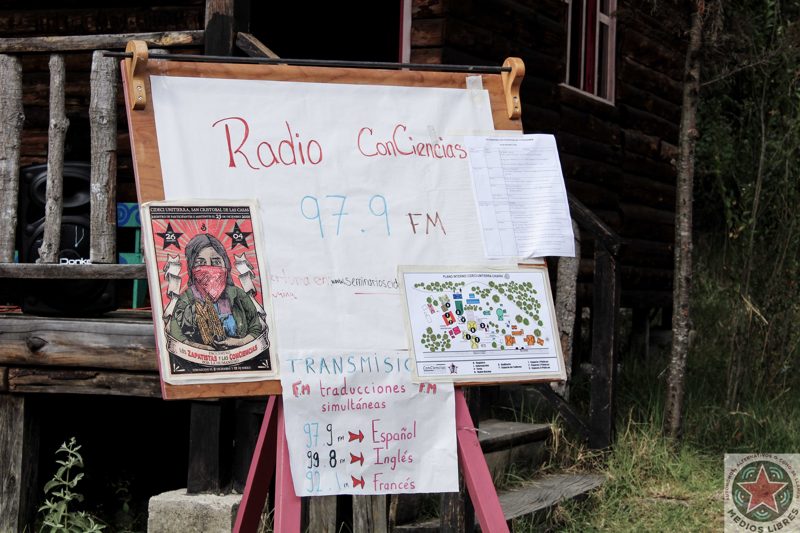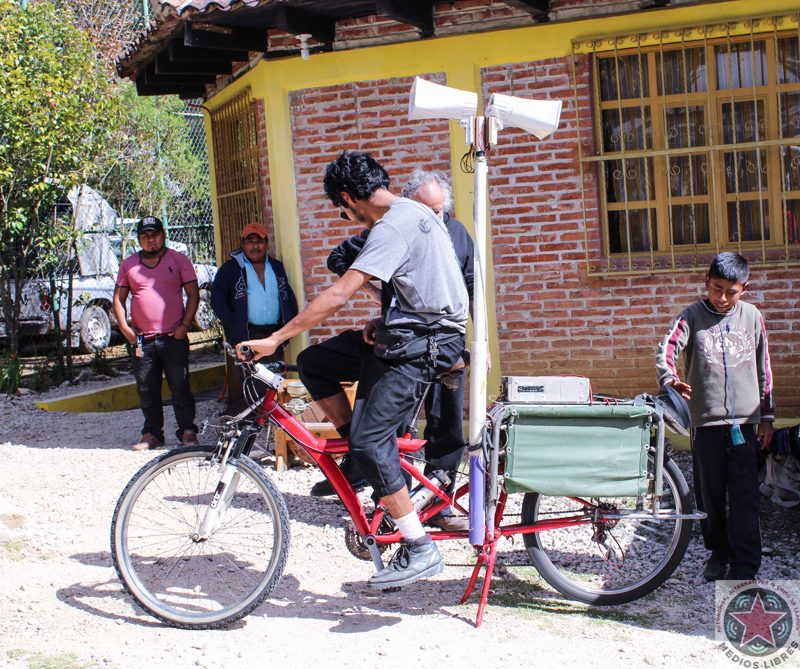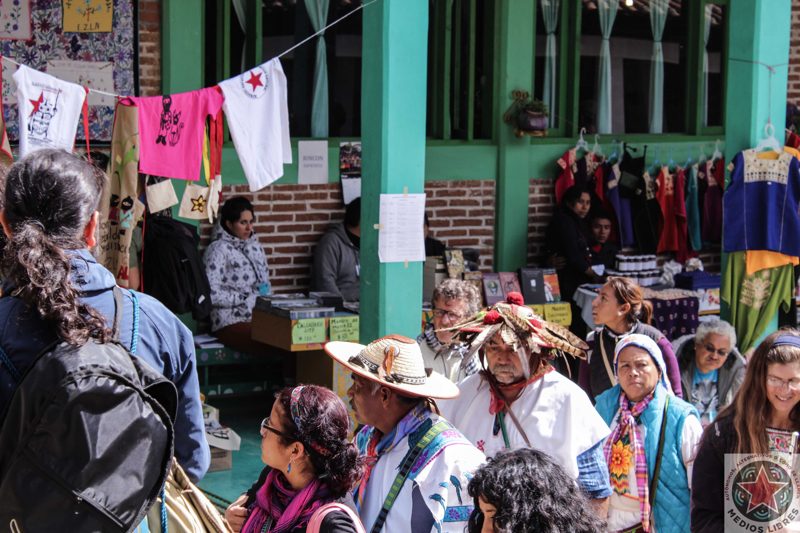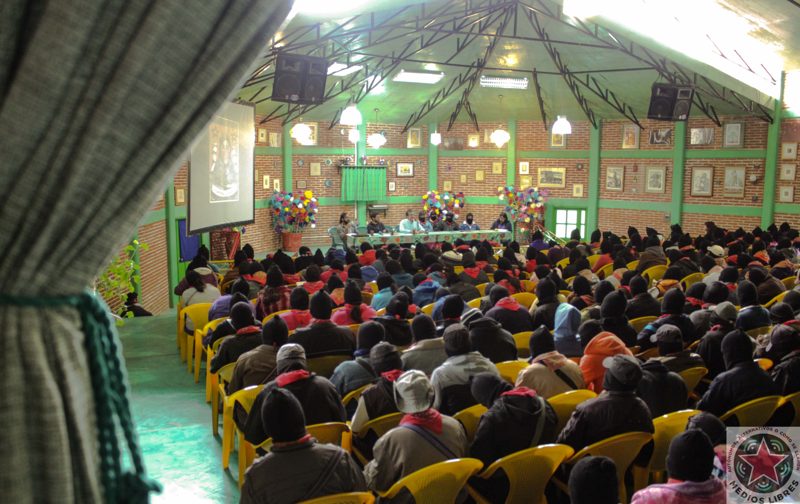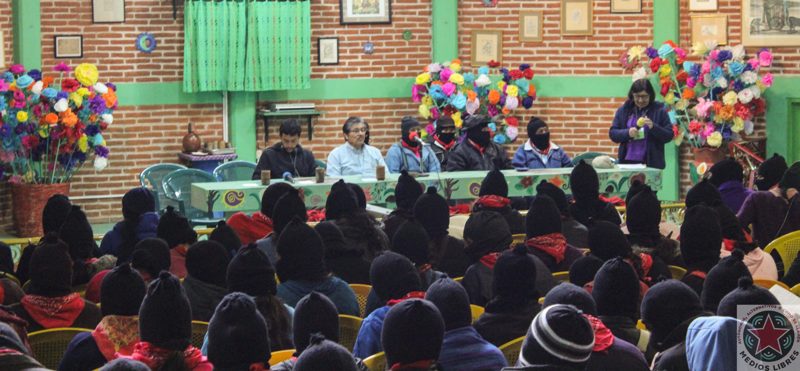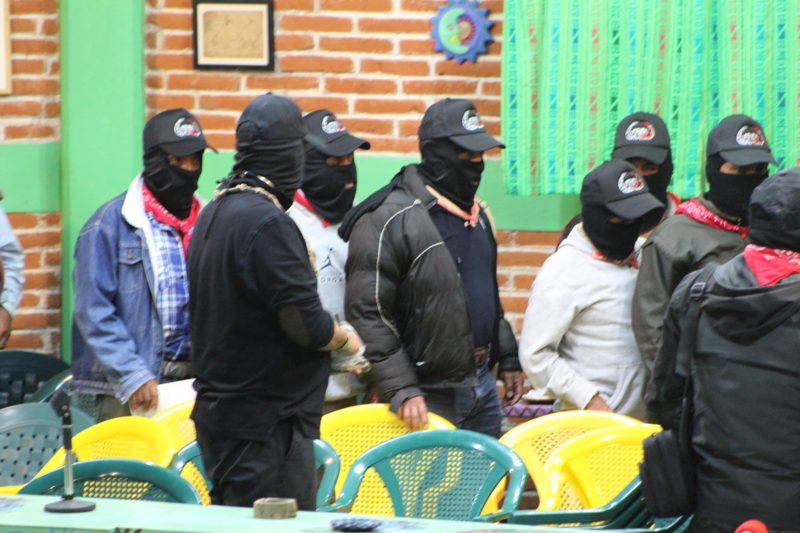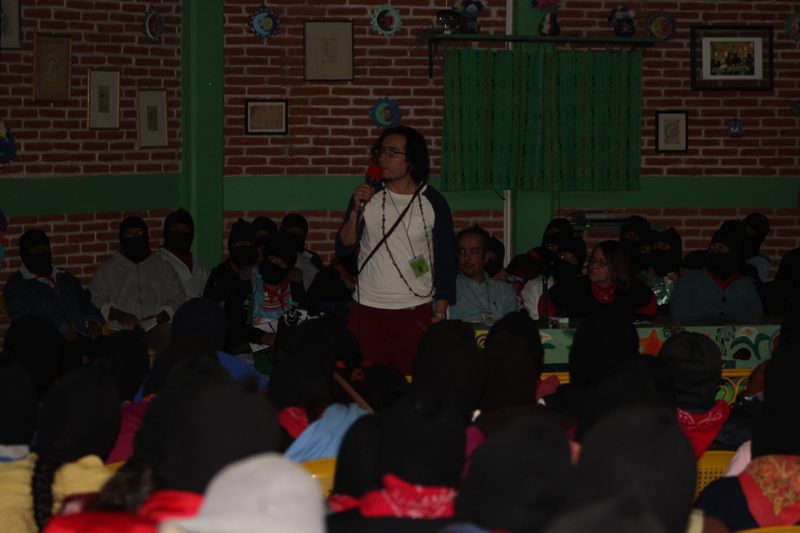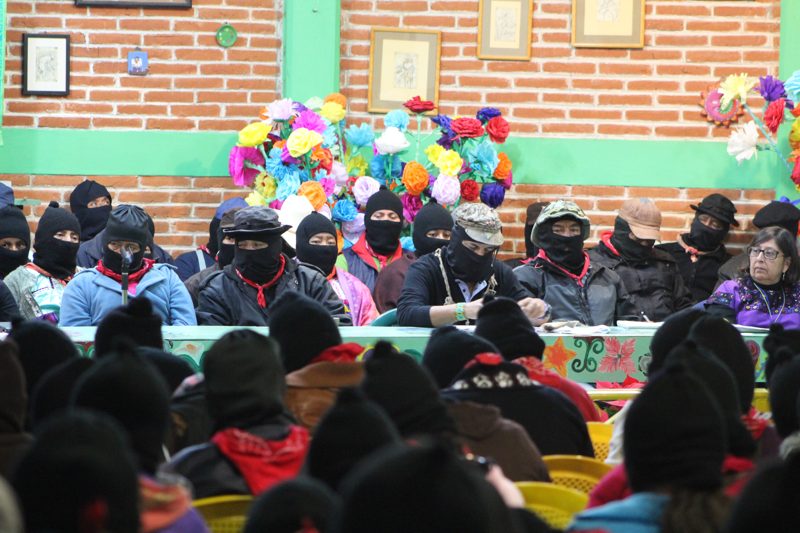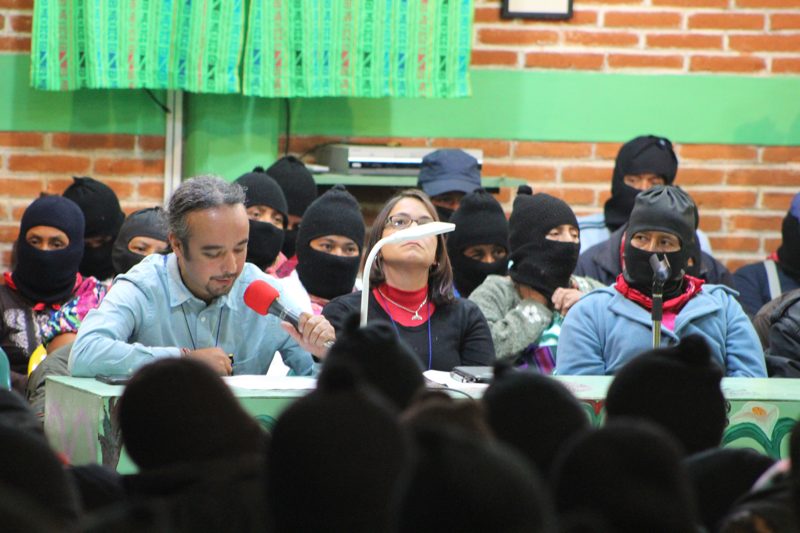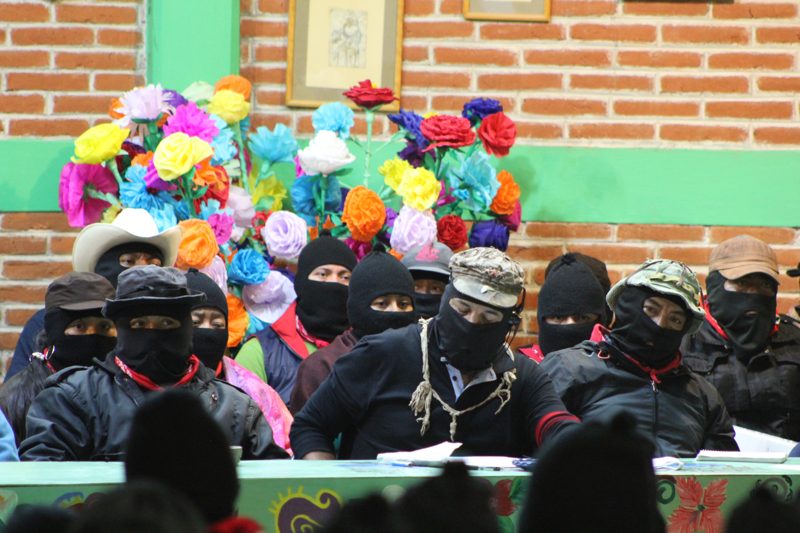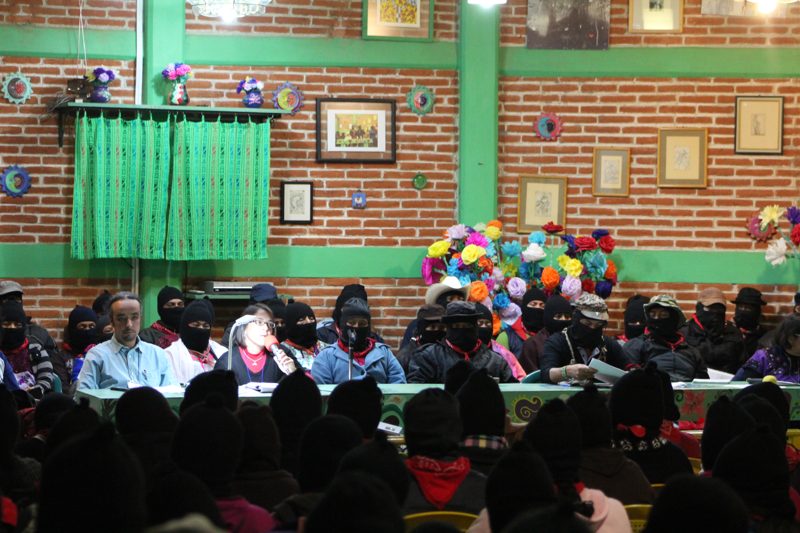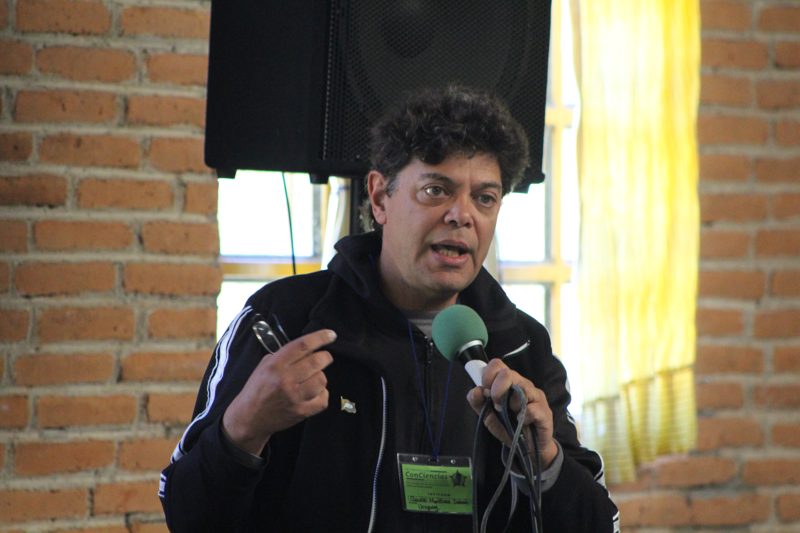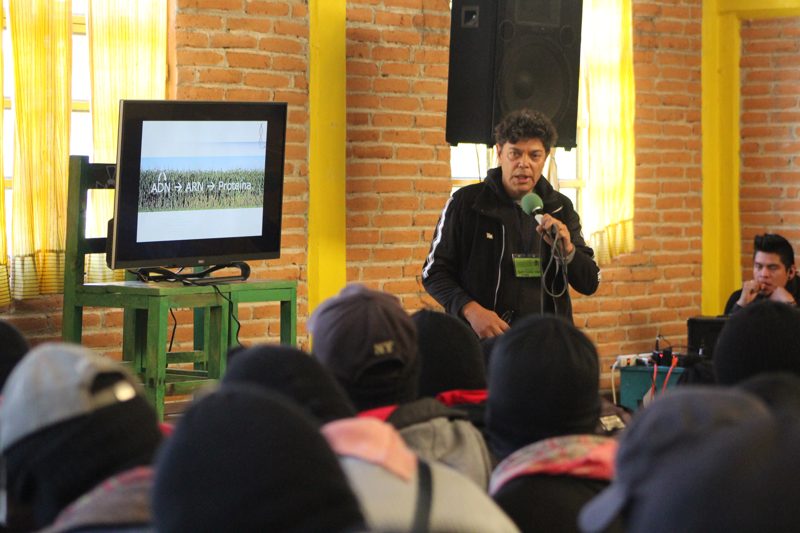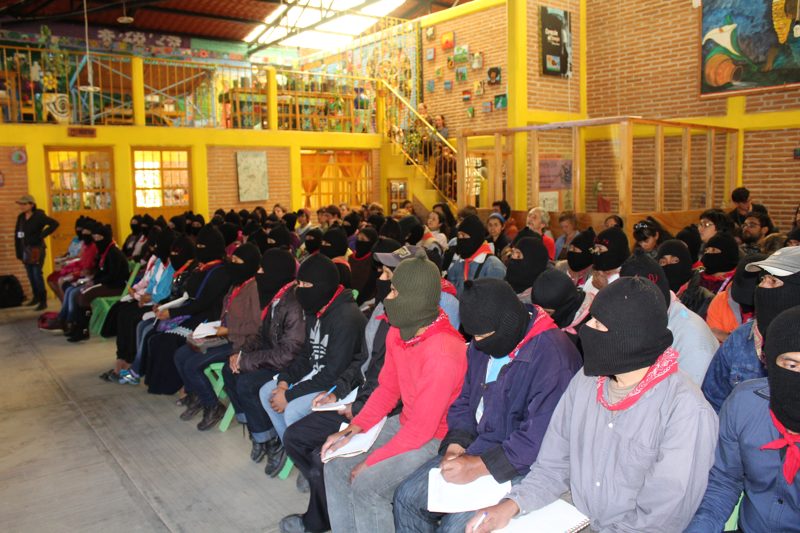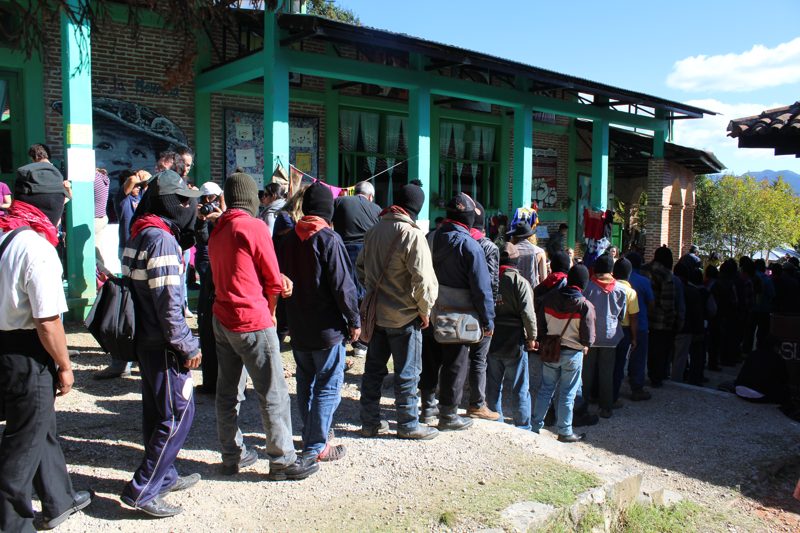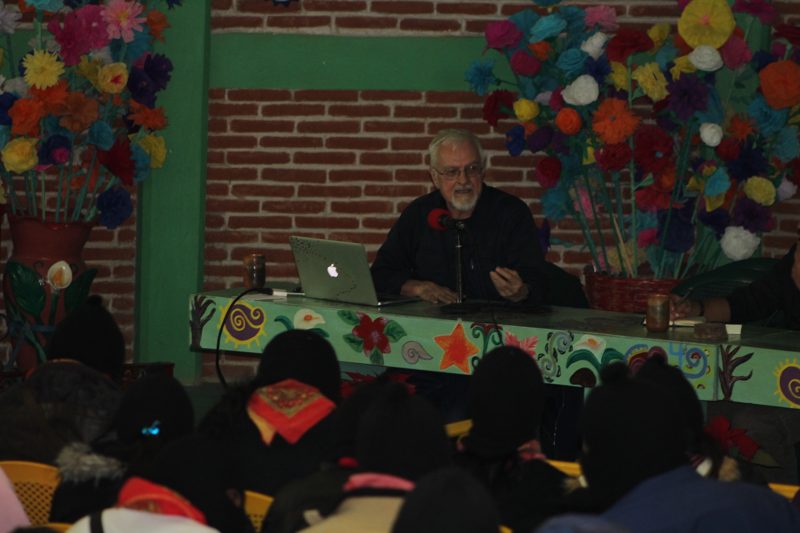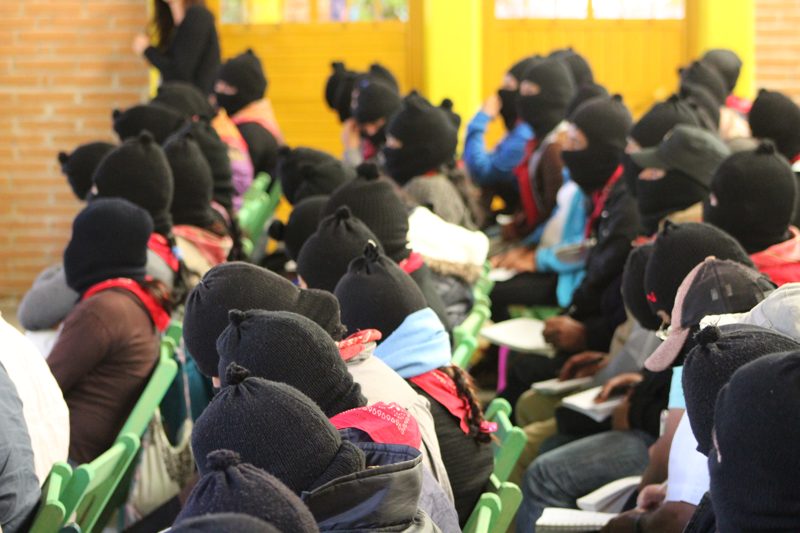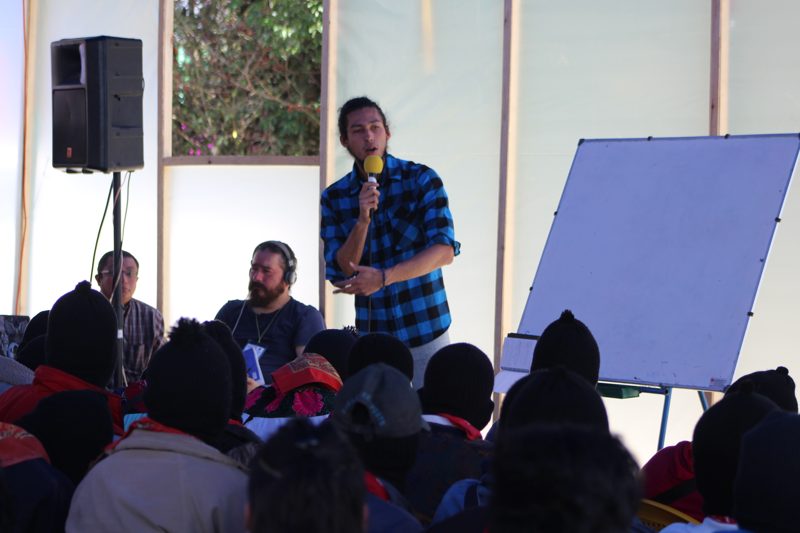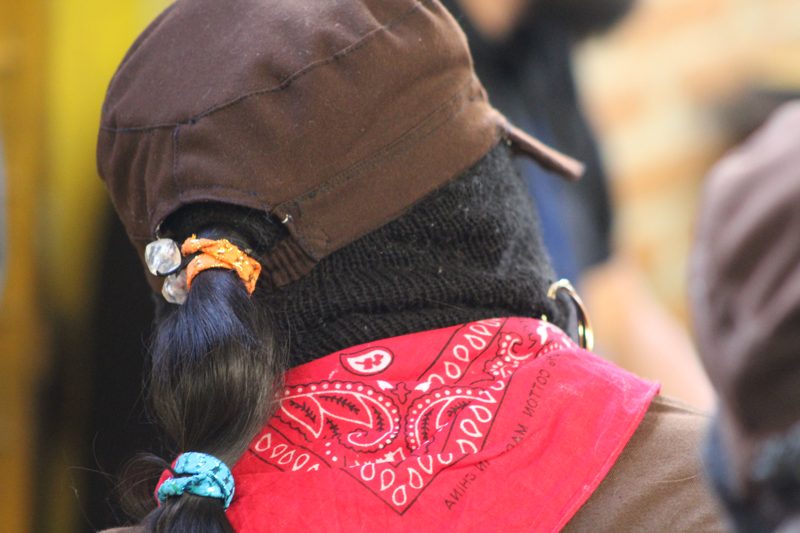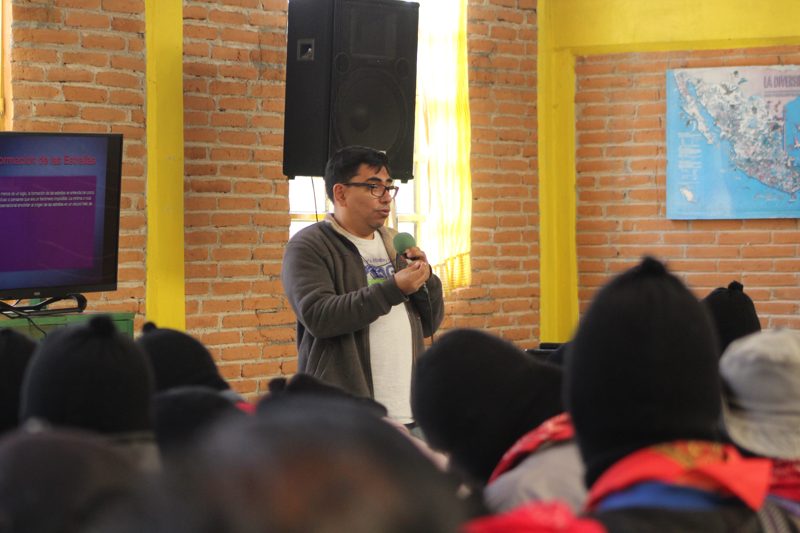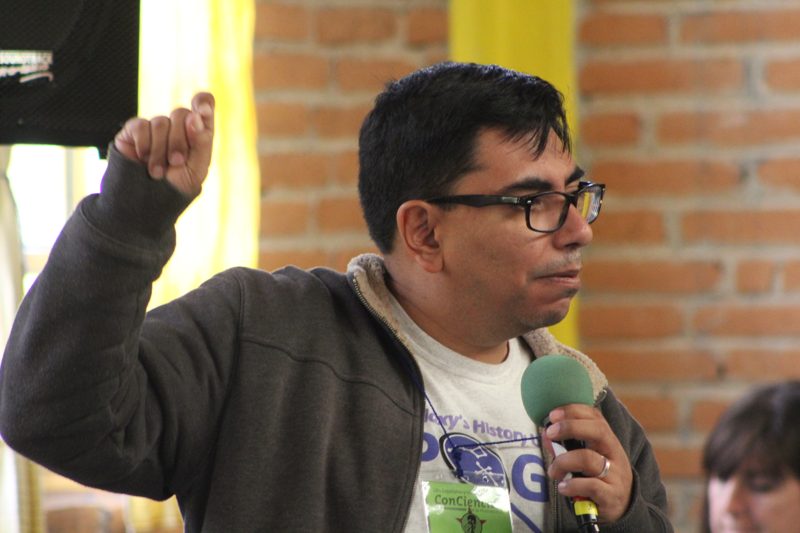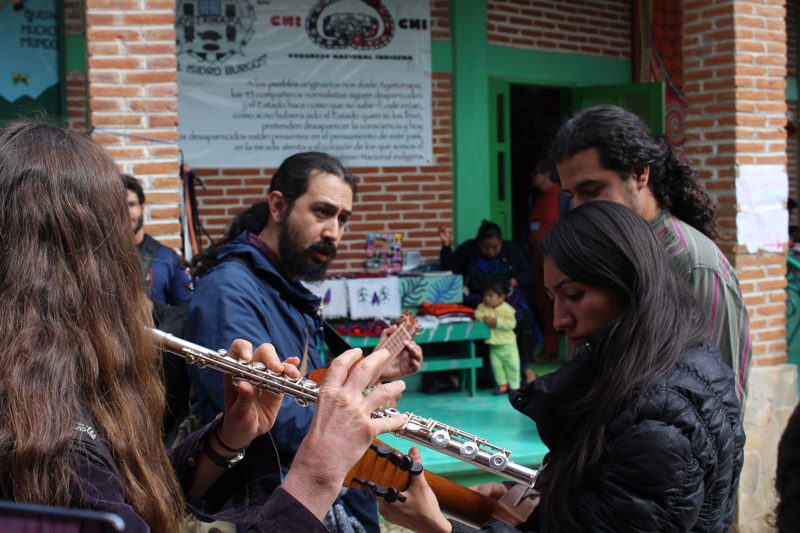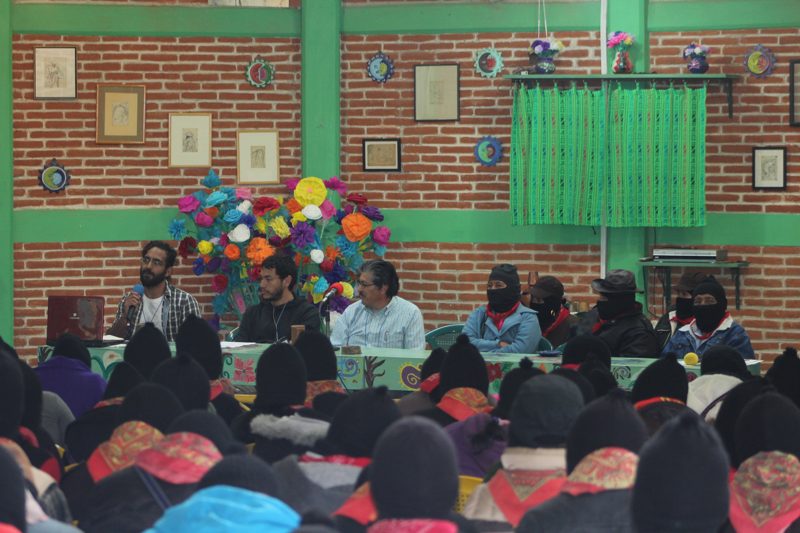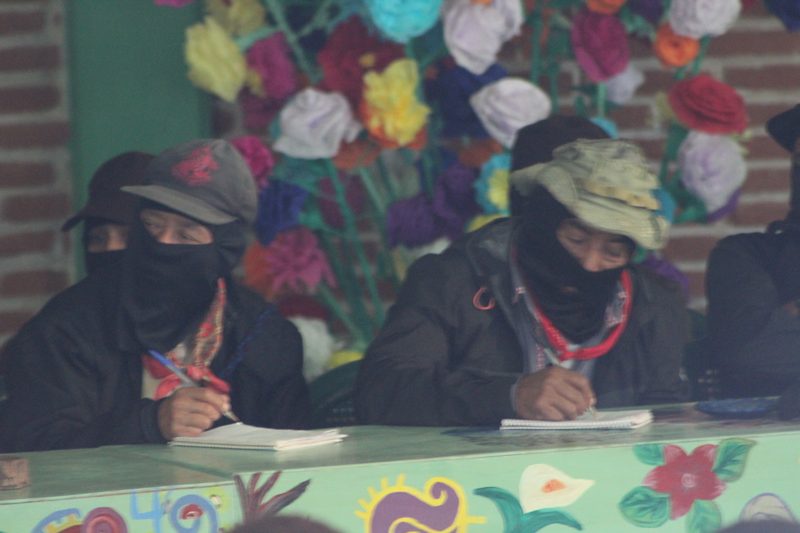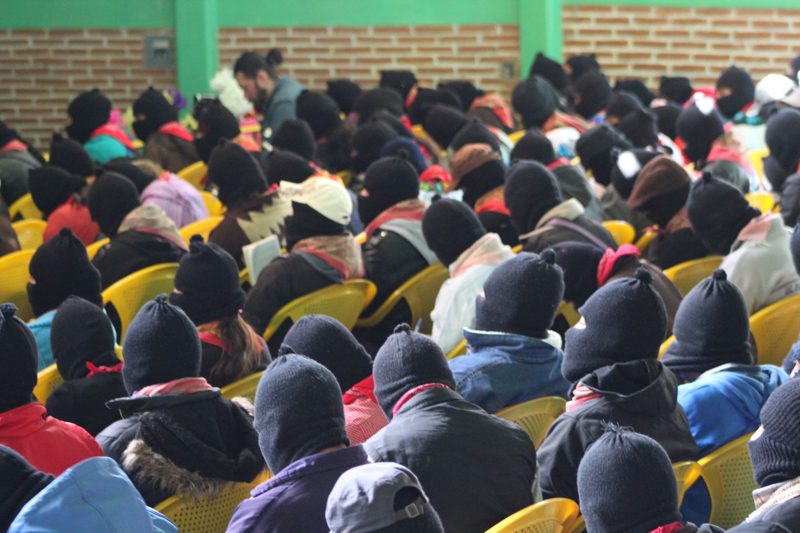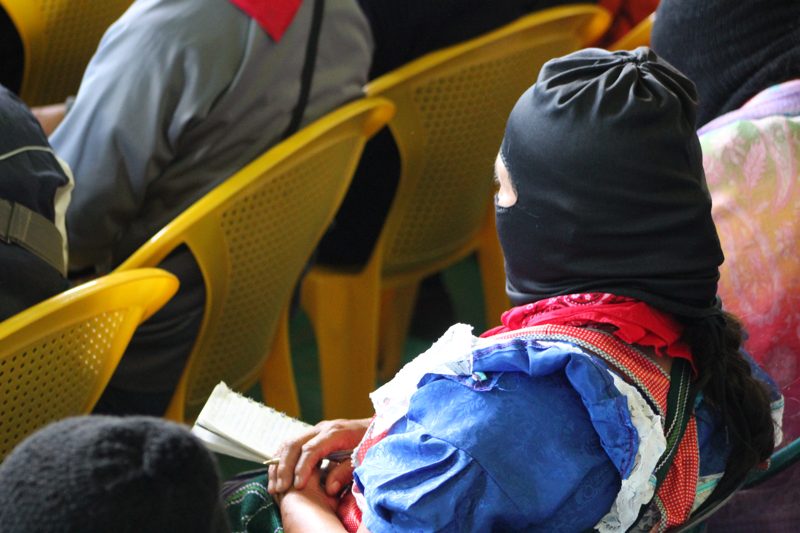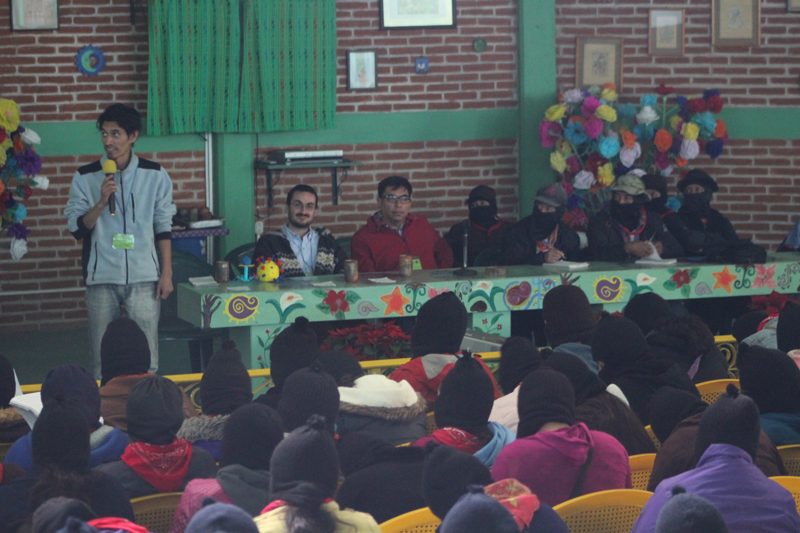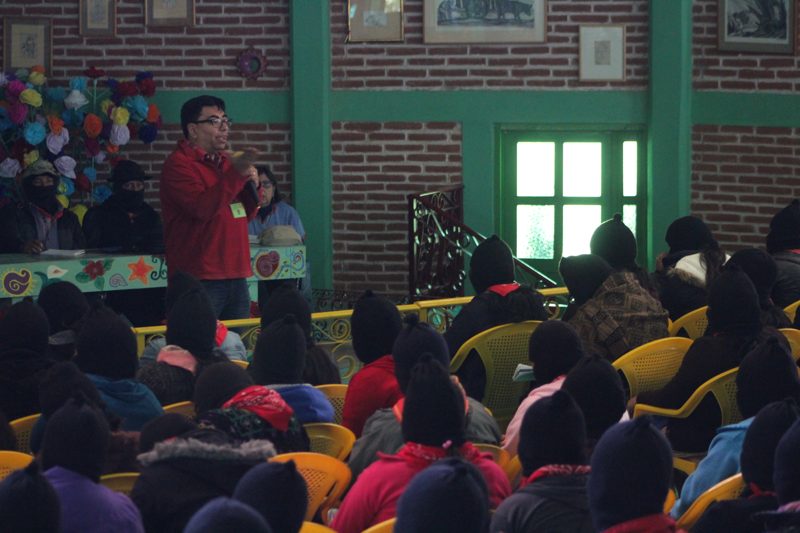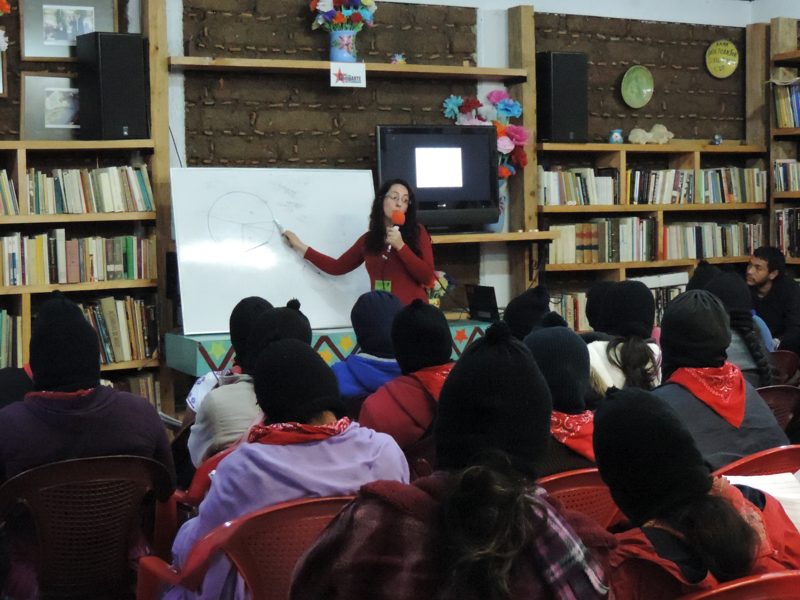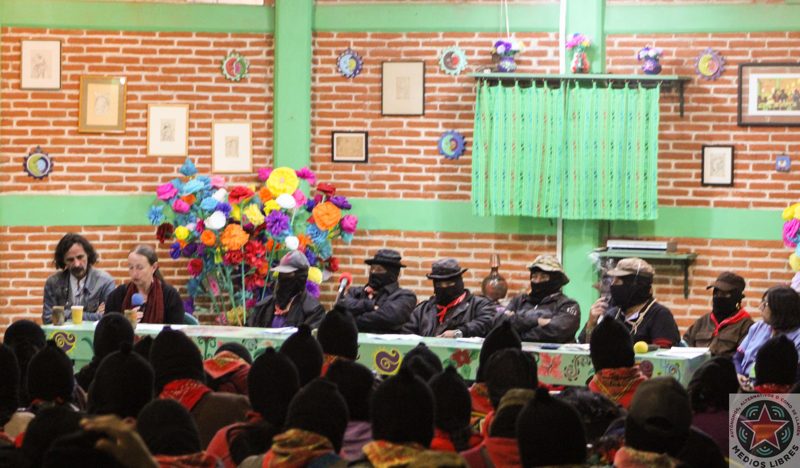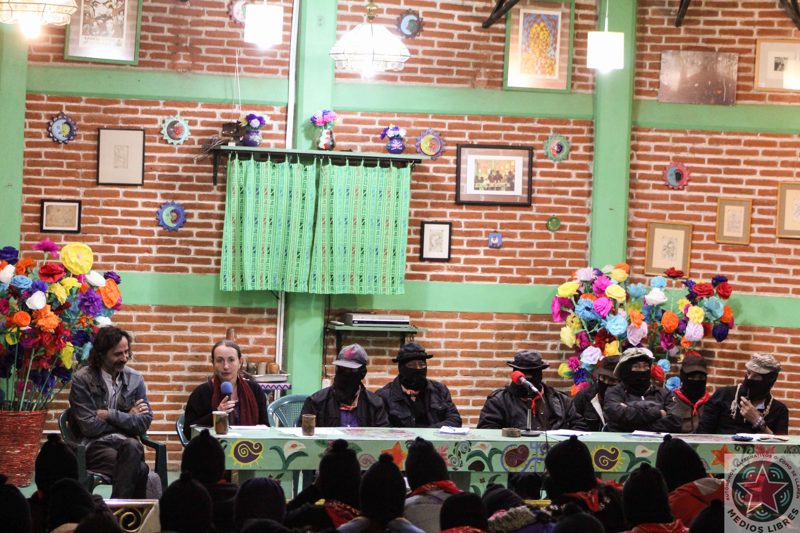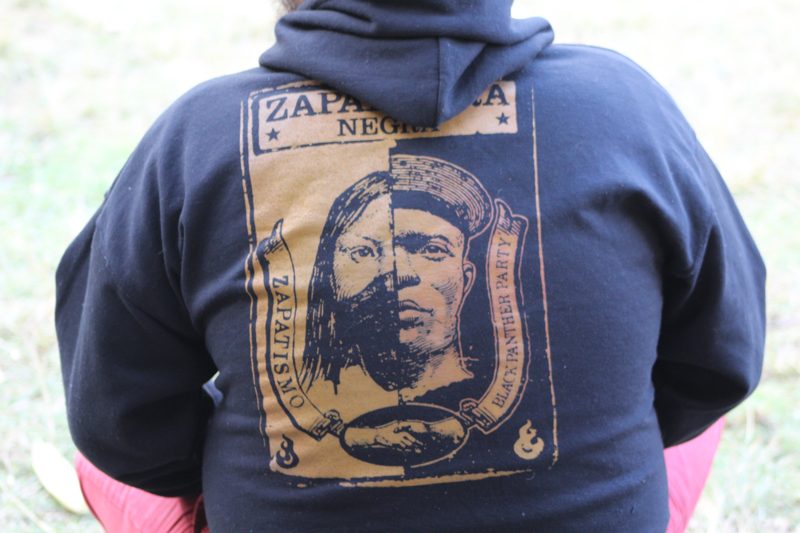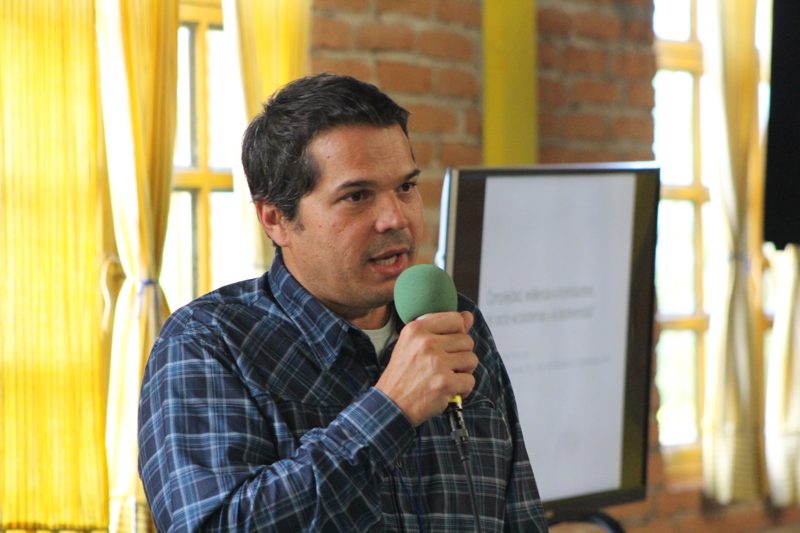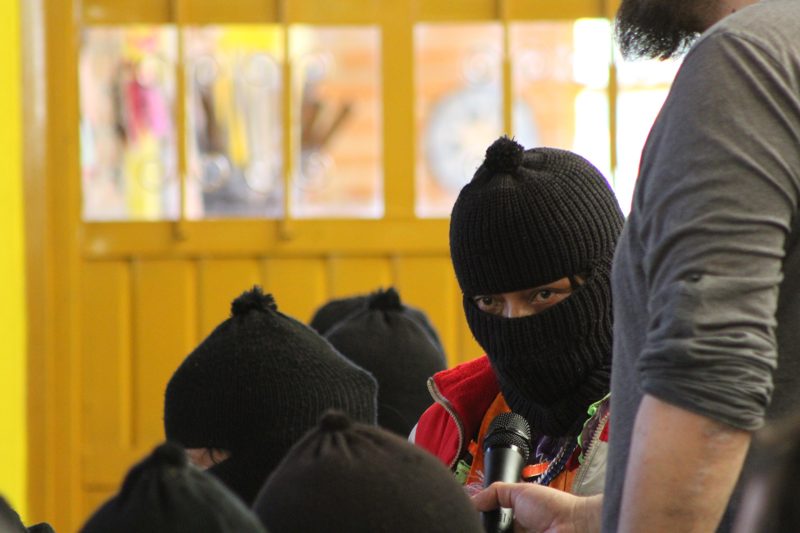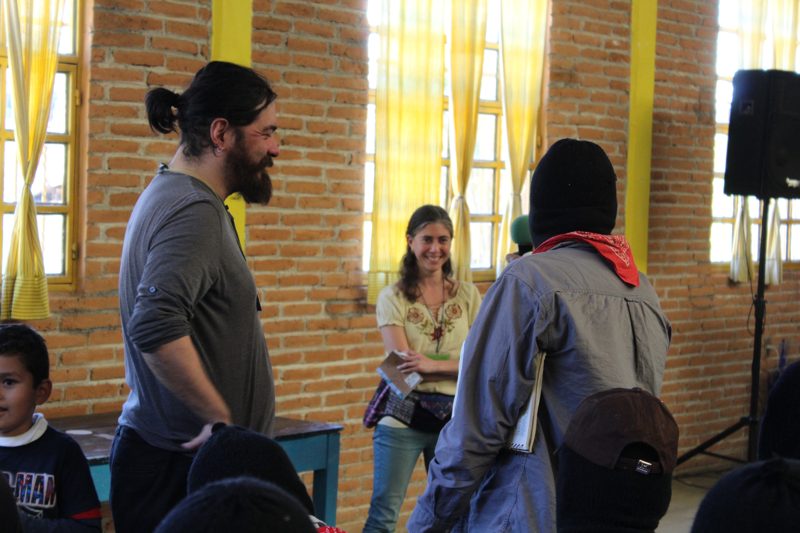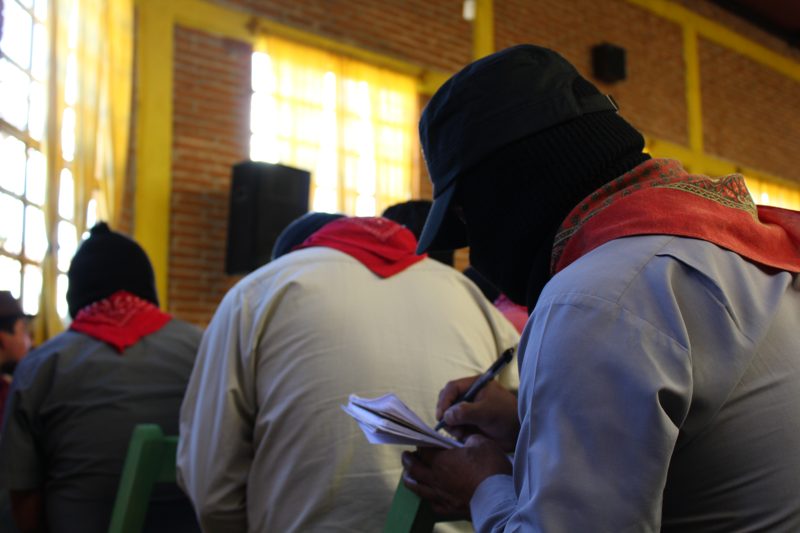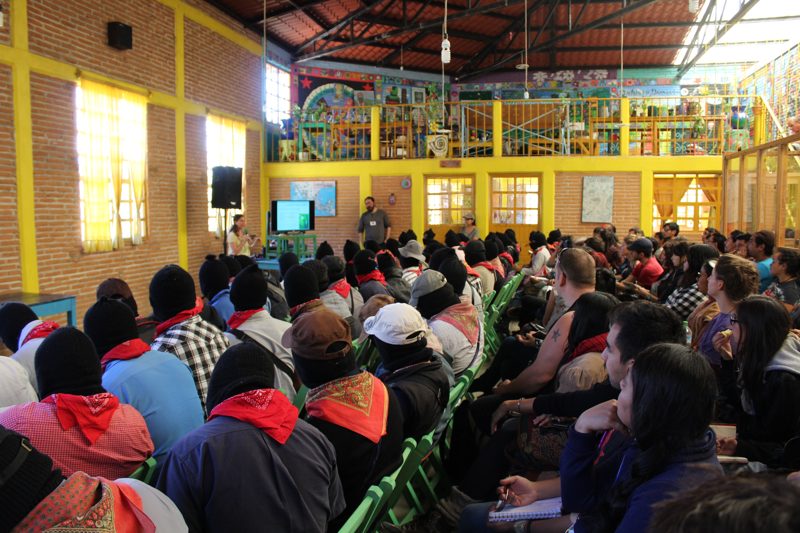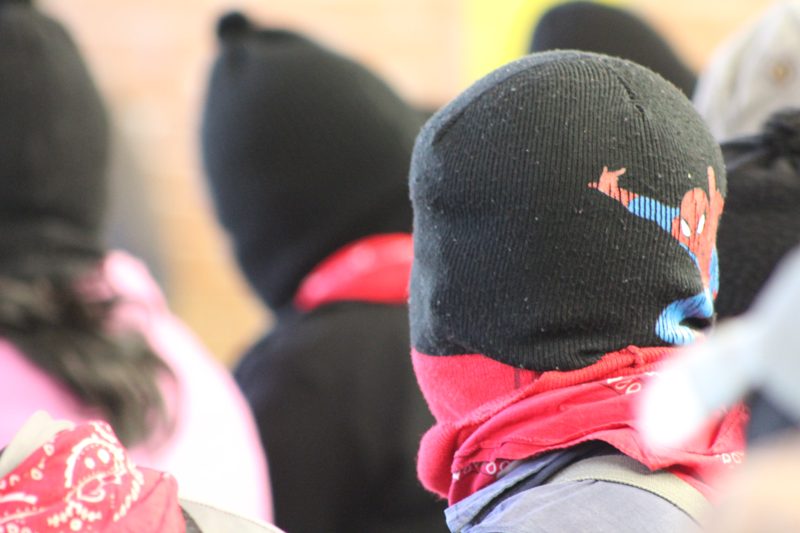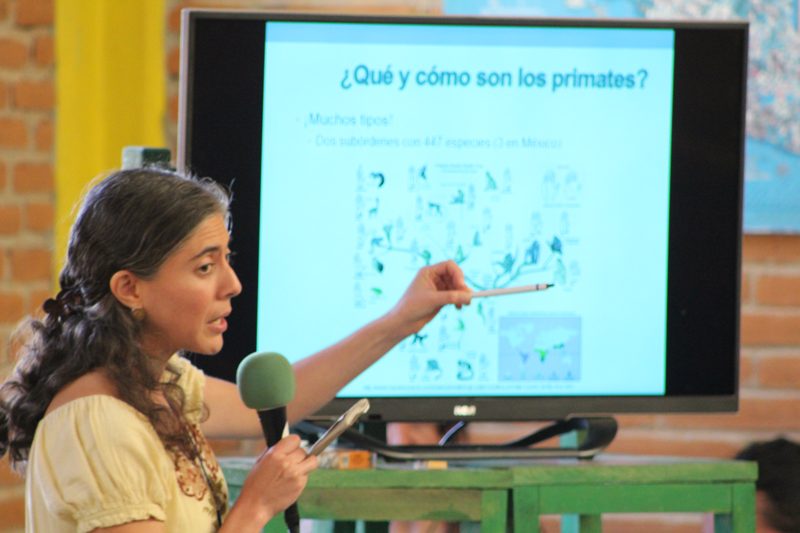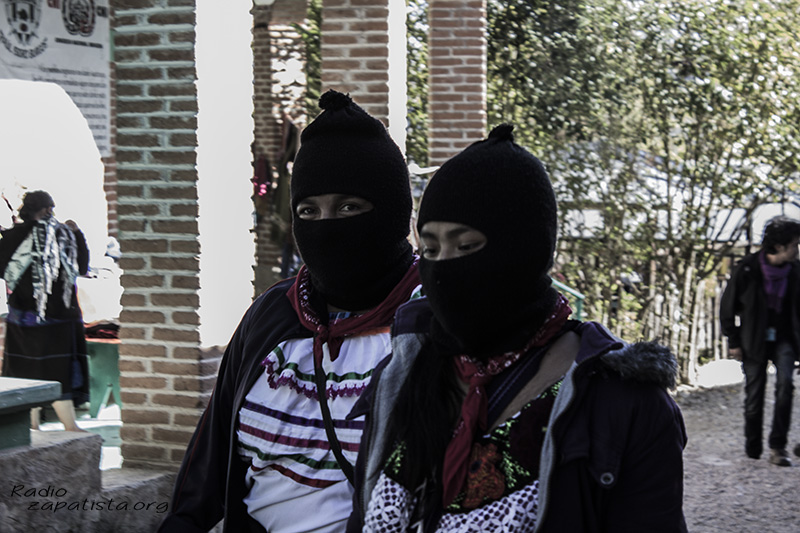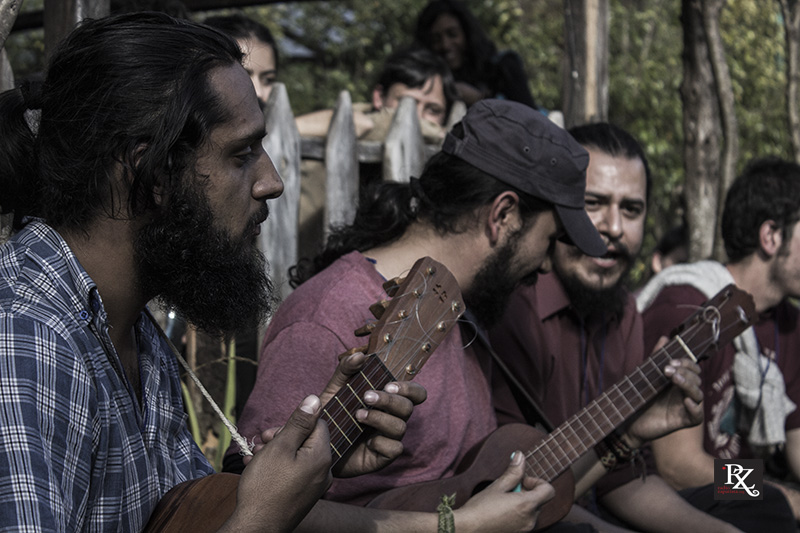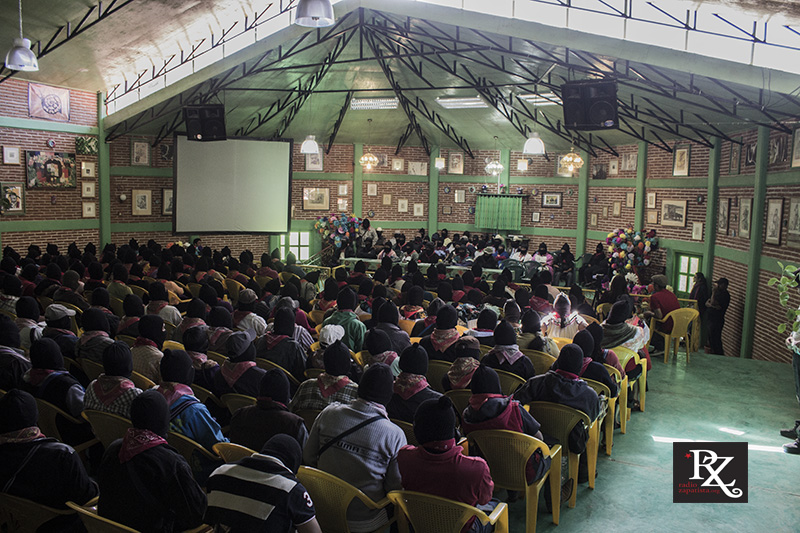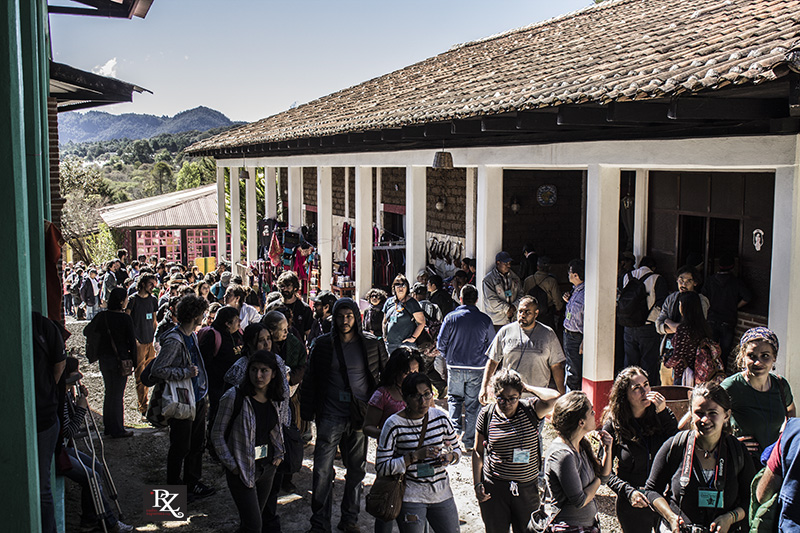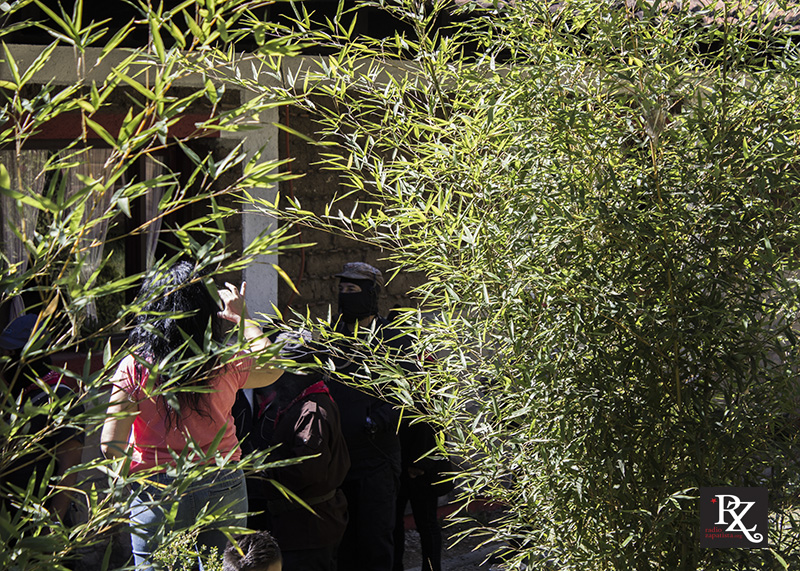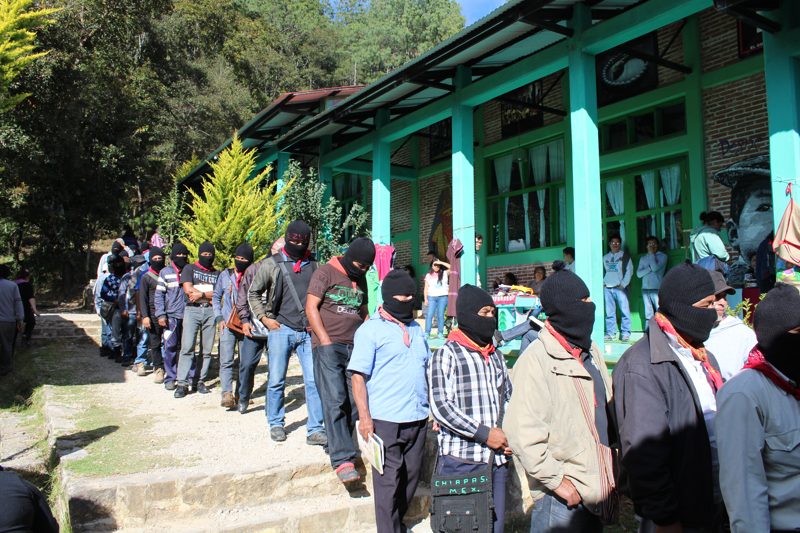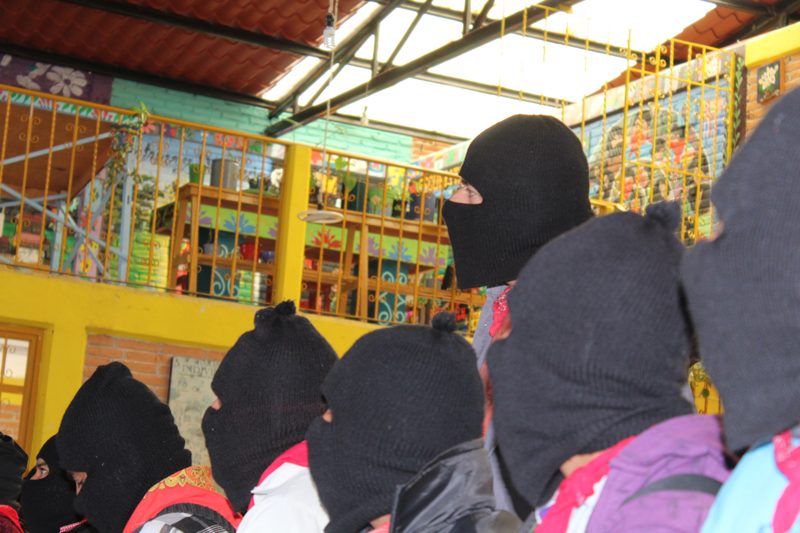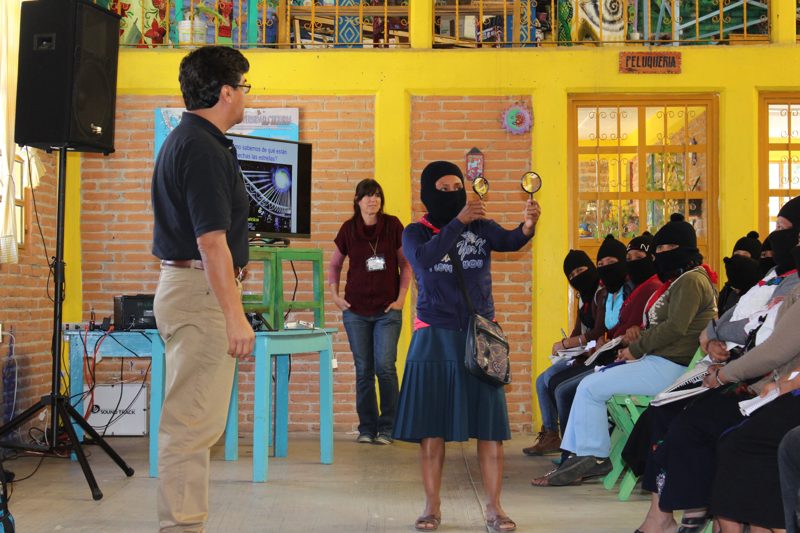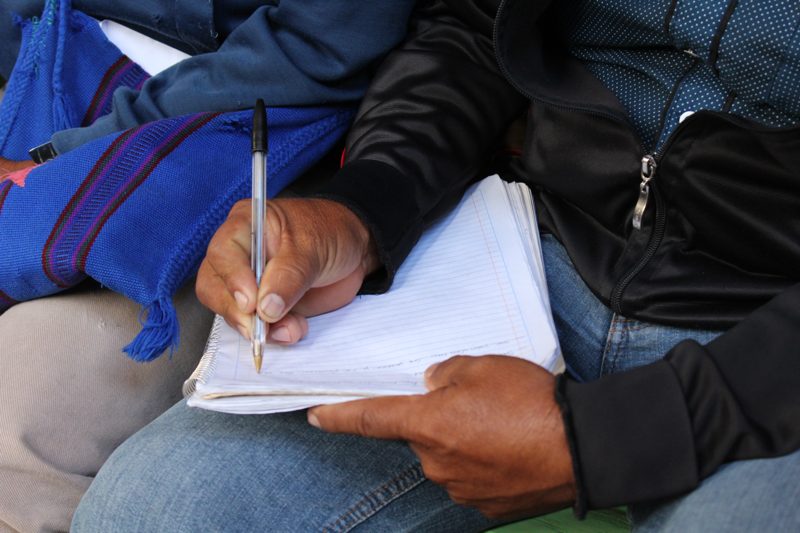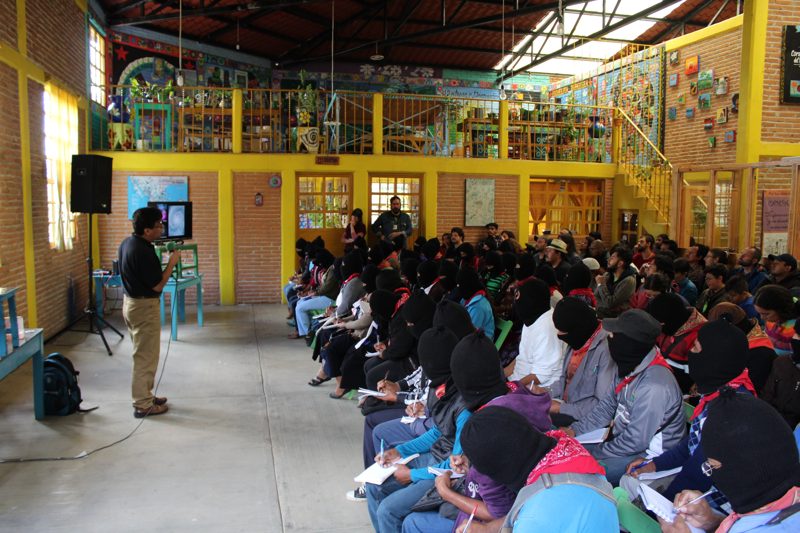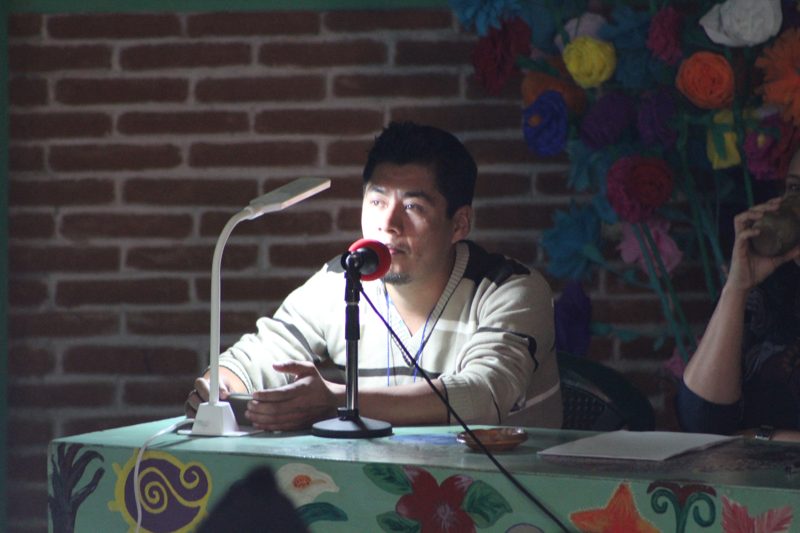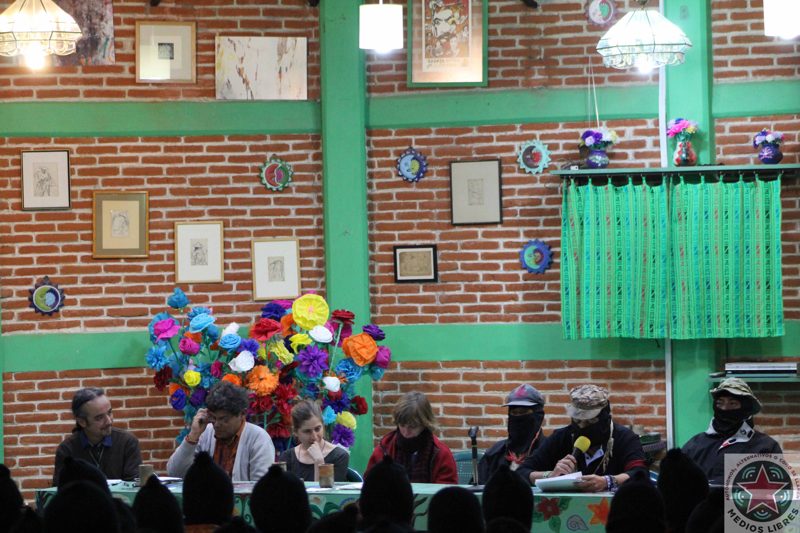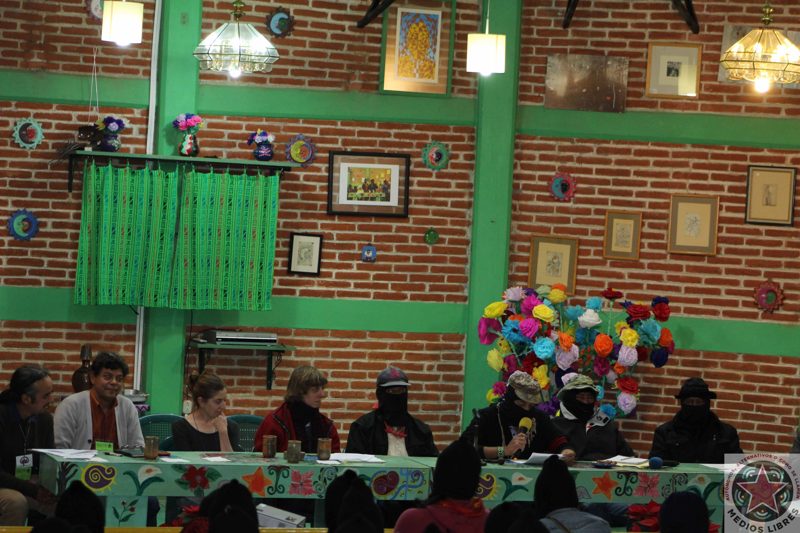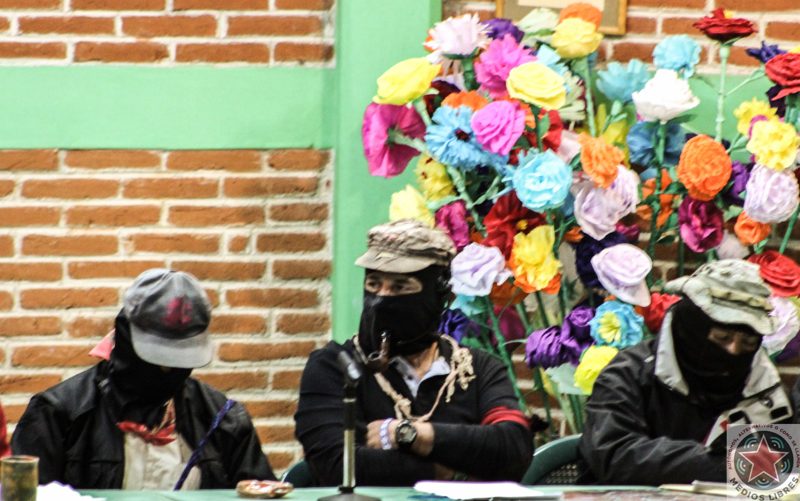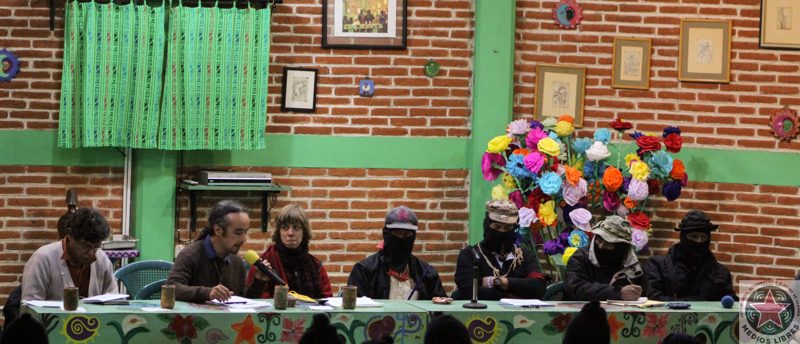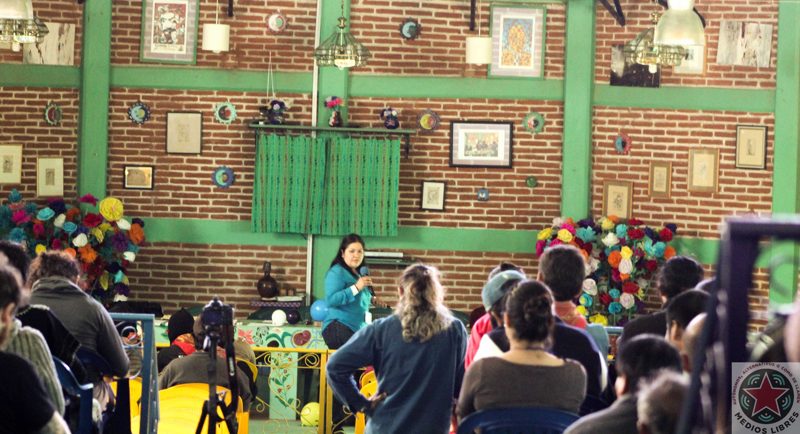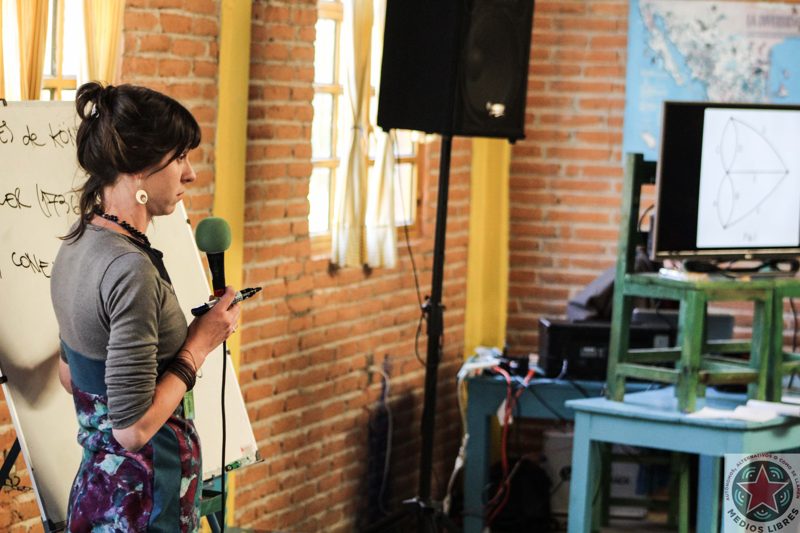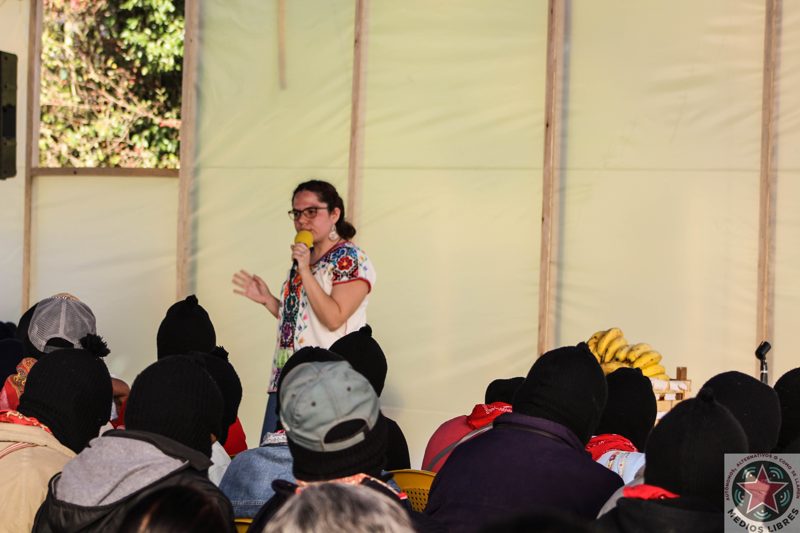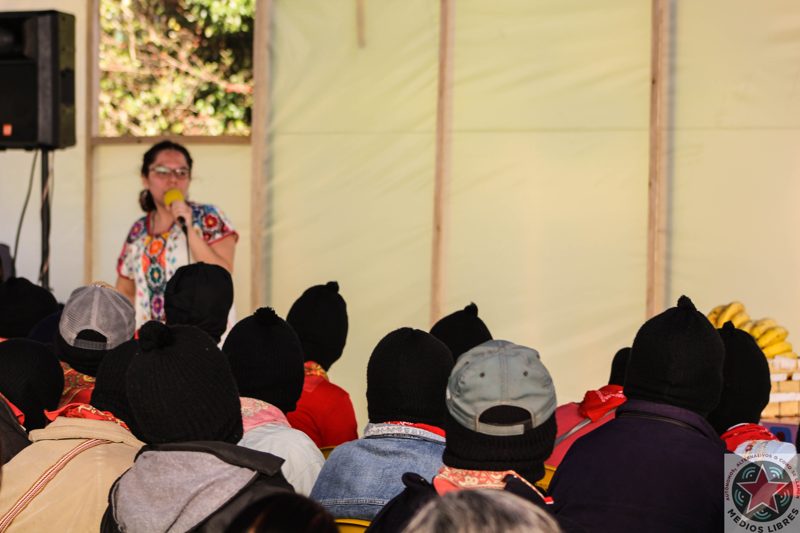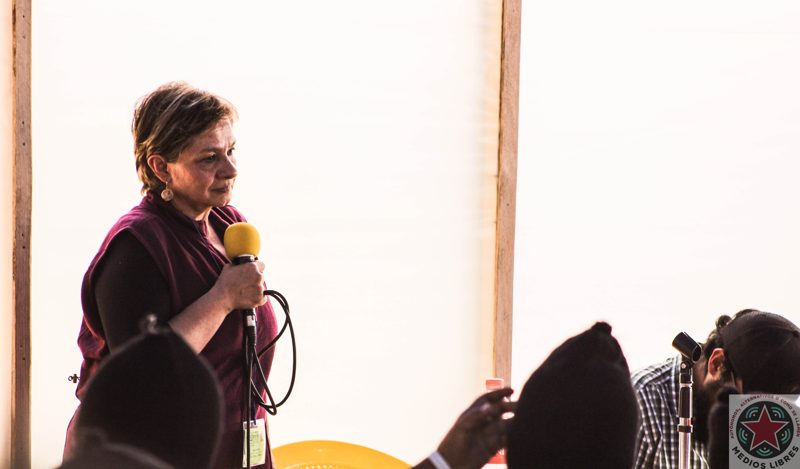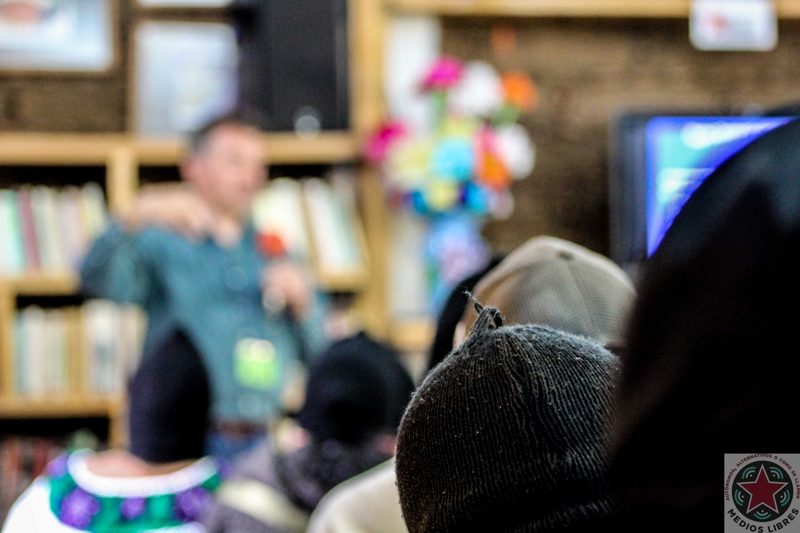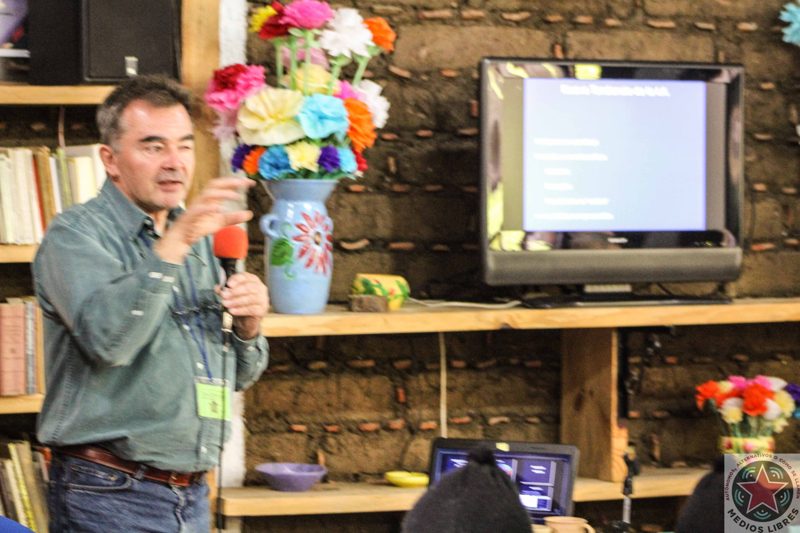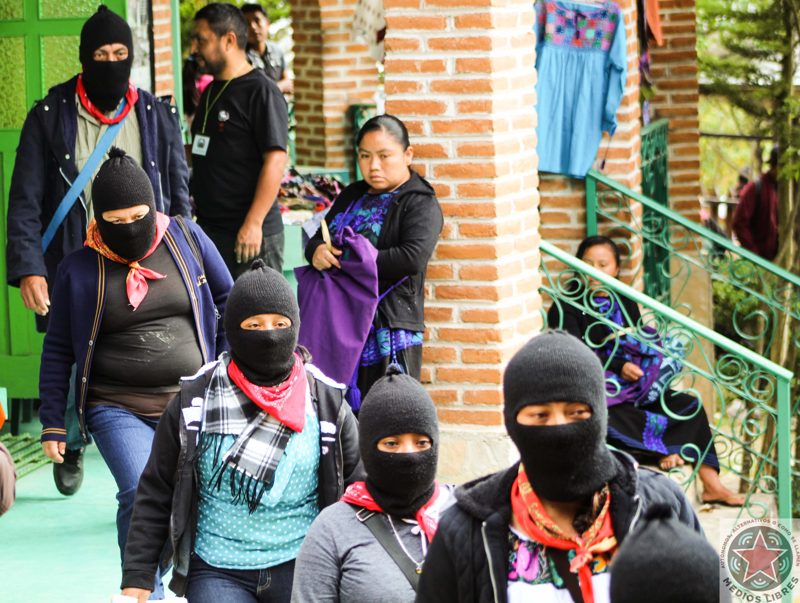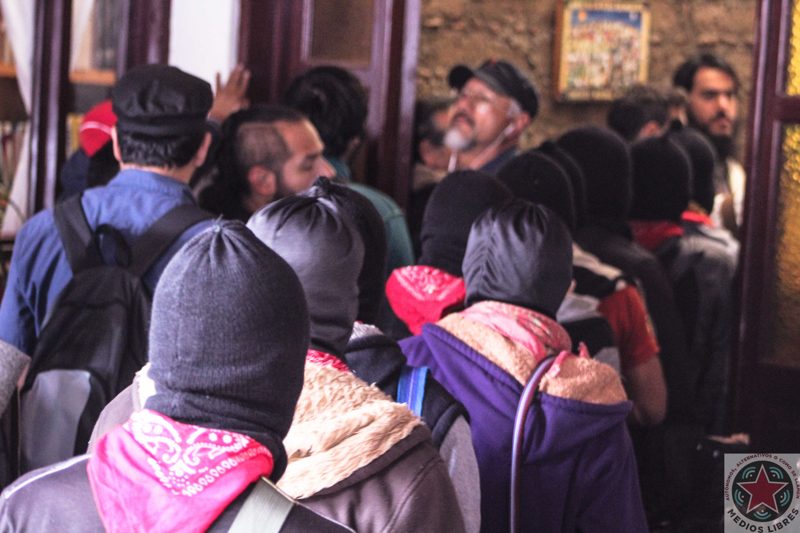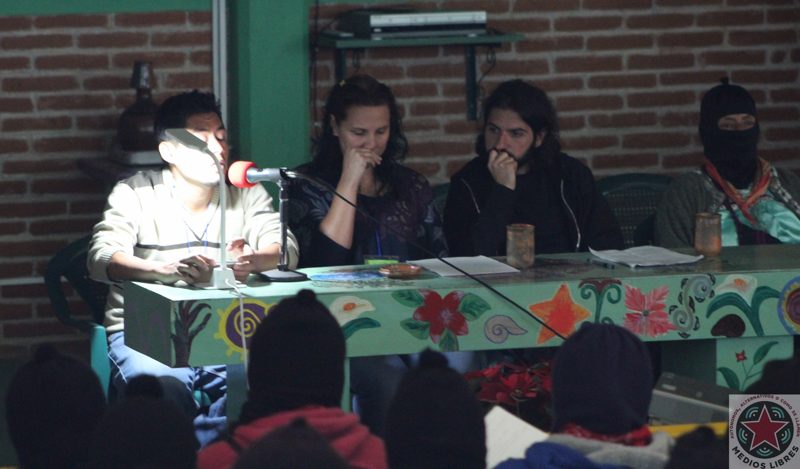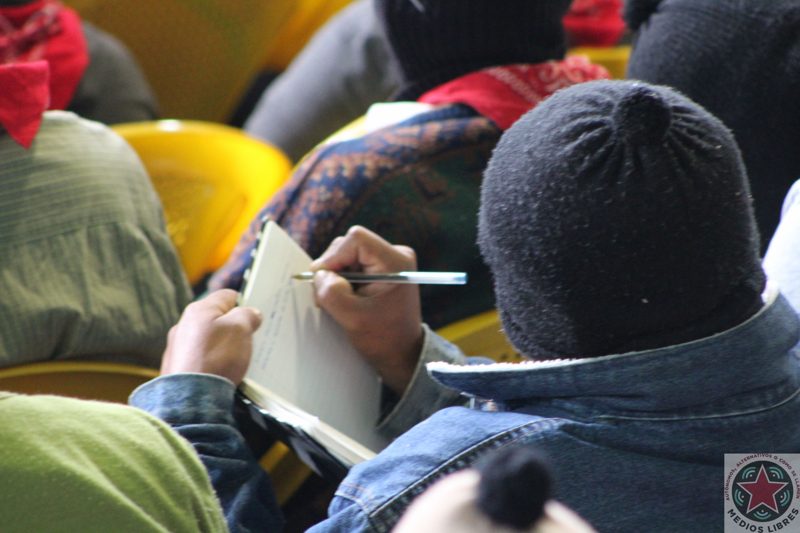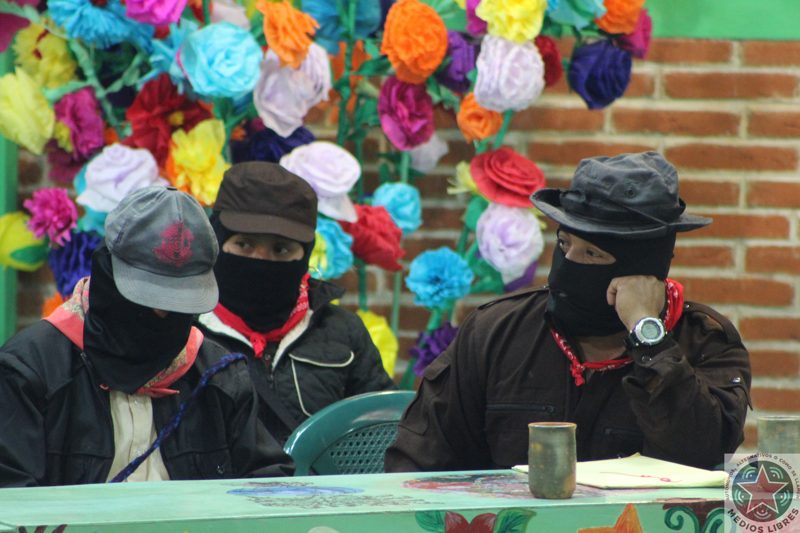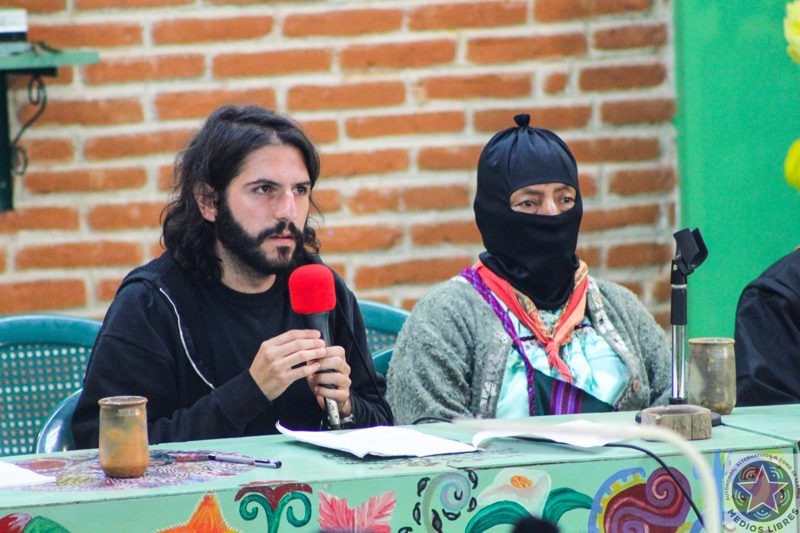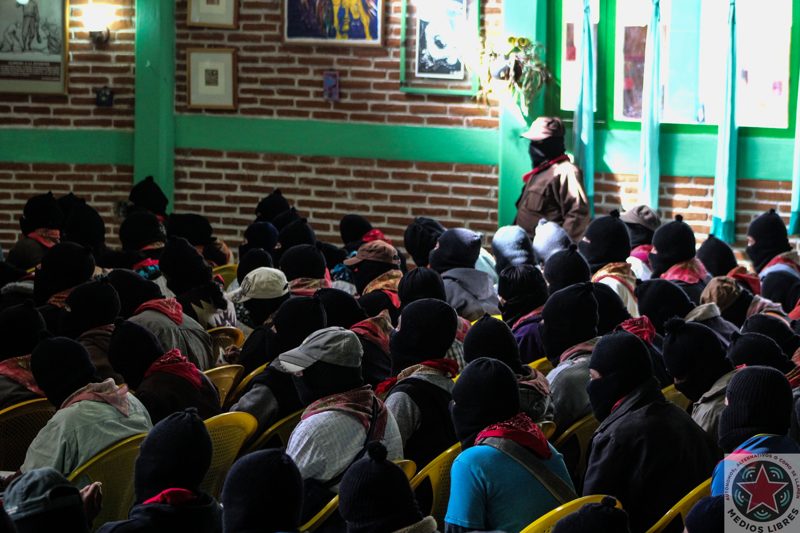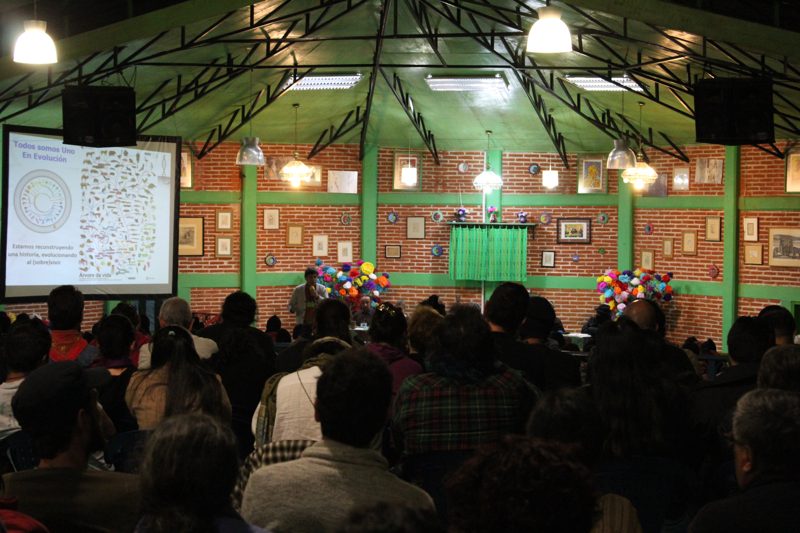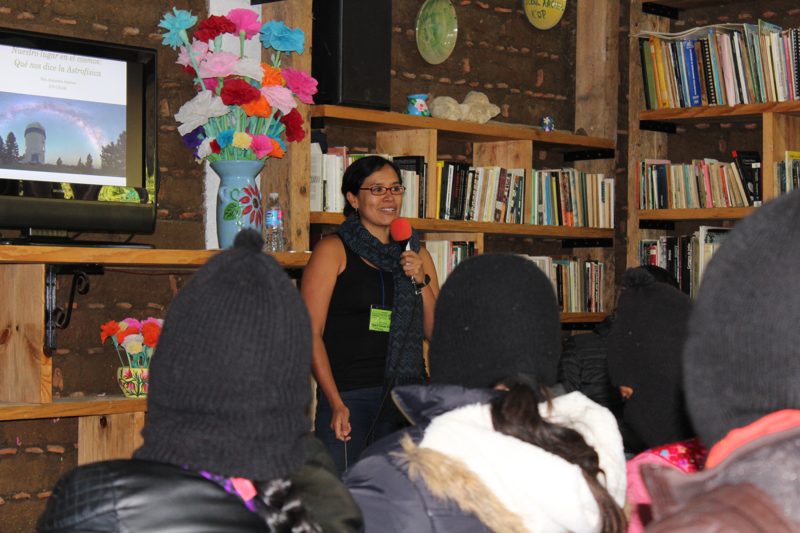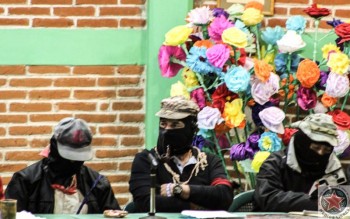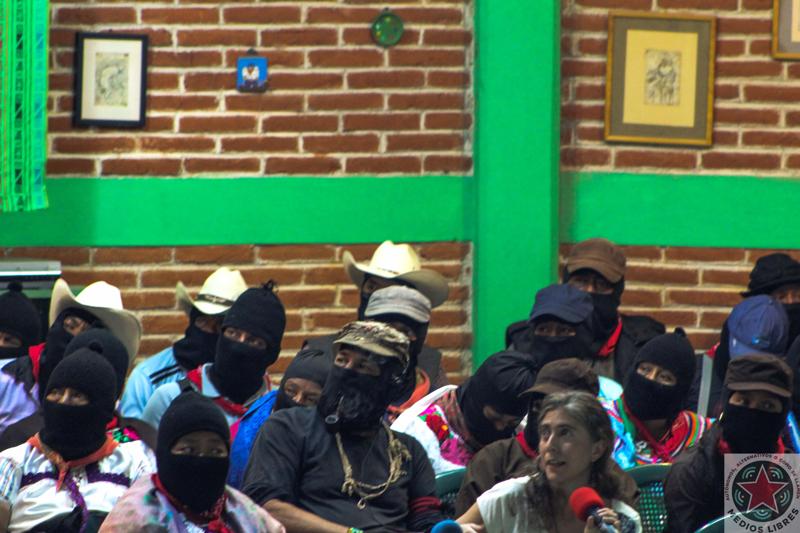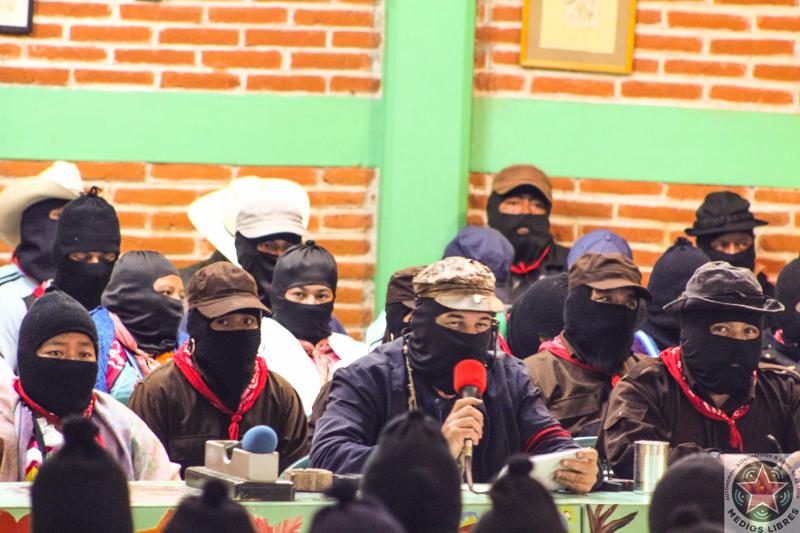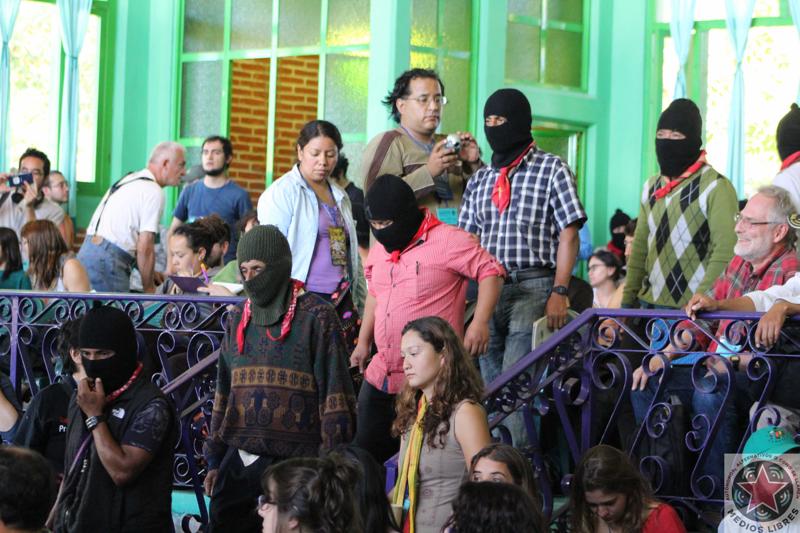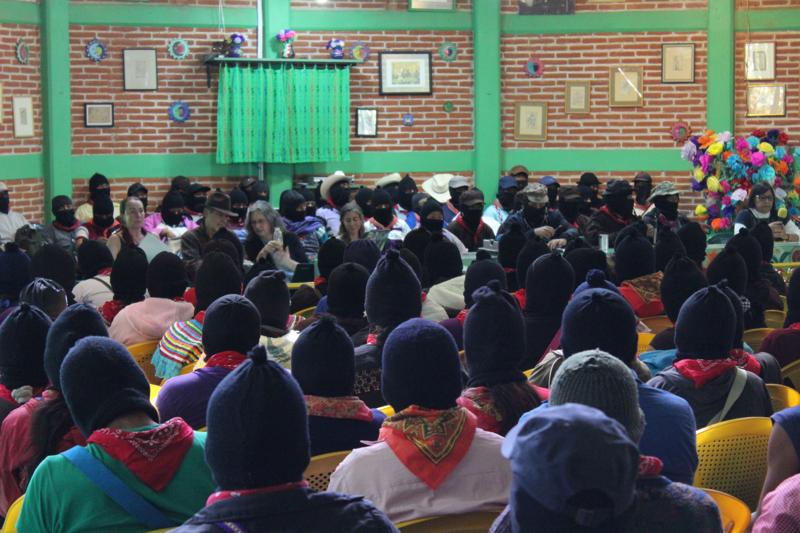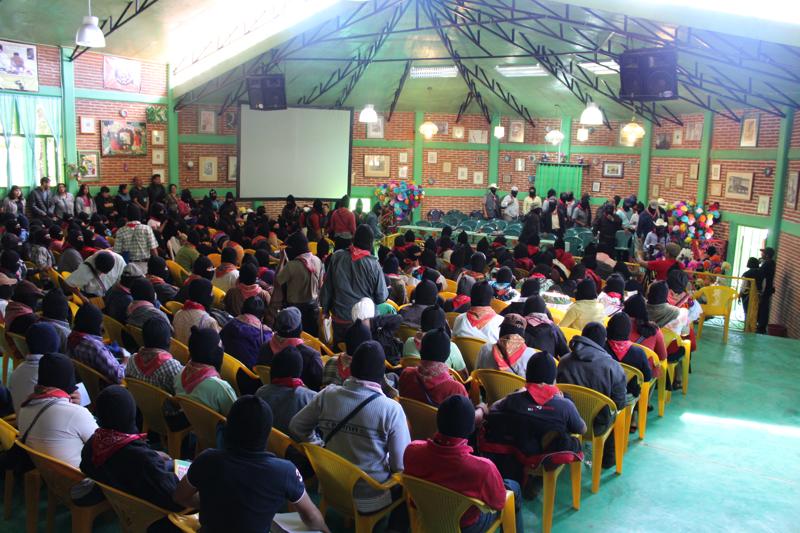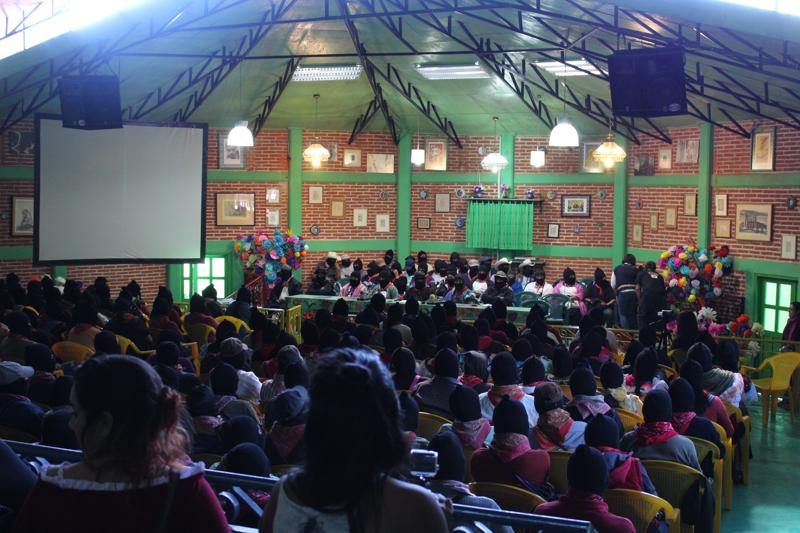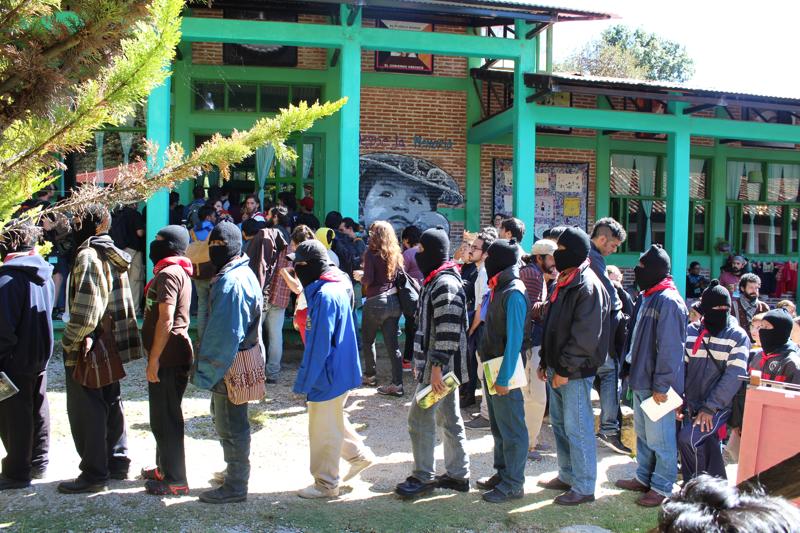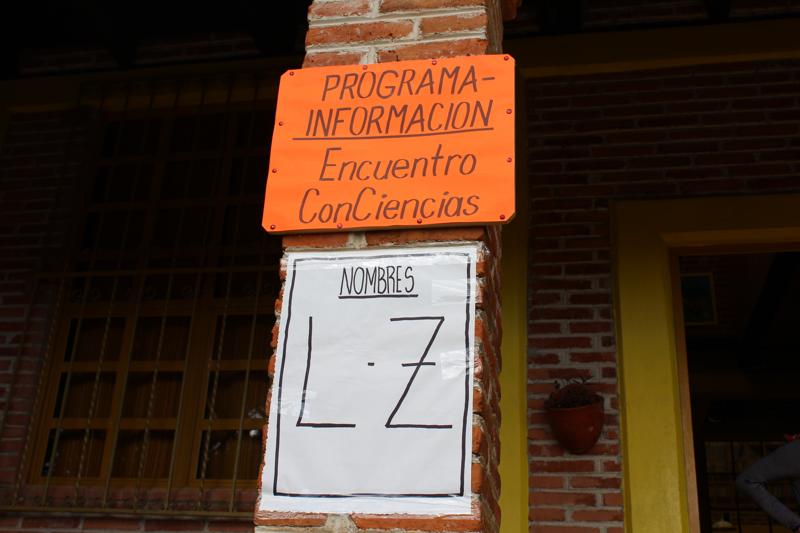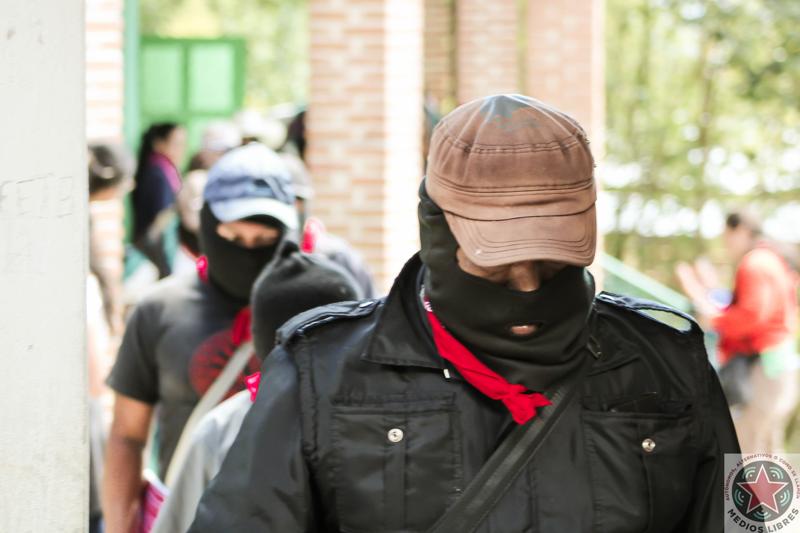
Multimedia
(Español) 5° Congreso Nacional Indígena: las resistencias y las rebeldías
Fuente: SubVersiones
Por María González
Fotografías por SubVersiones
Las afirmaciones y ejemplos de este artículo fueron recogidas durante las sesiones del 5° CNI de octubre de 2016. No es una presentación exhaustiva. Algunos datos complementarios se han obtenido de las páginas web de pueblos y medios libres compañeros.
Las formas en que los pueblos originarios de México –participantes del Congreso Nacional Indígena (CNI)– resisten y se rebelan ante los malos gobiernos, las empresas voraces y sus proyectos de muerte, implican procesos de organización popular de largo aliento. Resulta sustancial comprender que sus procesos son heterogéneos, llevan ritmos variados e implican condiciones, duraciones, obstáculos, metas y acciones diversas, aunque todos coinciden en que lo primordial es la defensa del territorio (con todo lo que implica), las comunidades que lo habitan y la vida.
Por tal motivo, resulta enriquecedor asistir a la escucha de la multiplicidad de caminos y experiencias que delegadas y delegados de cada lugar comparten cuando están junt@s. El horizonte convenido es el cumplimiento –por ahora en los hechos– de los Acuerdos de San Andrés Sacamch’en, que el gobierno federal ha incumplido desde su firma, el 16 de febrero de 1996, y que son el fruto de las negociaciones por la paz tras el levantamiento armado del Ejército Zapatista de Liberación Nacional (EZLN) en enero de 1994, por democracia, libertad y justicia.
Durante las mesas de trabajo que se realizaron el 11 de octubre de 2016, en el marco del 5° Congreso y 20 aniversario del CNI –que se encuentra en sesión permanente y reanuda trabajos el 30 de diciembre–, pudimos escuchar cómo los pueblos han ido implementando a lo largo de su lucha un entramado de acciones encaminadas a generar su autonomía y salvaguardar sus territorios –incluidos los bienes materiales/naturales (tierras, ríos, bosques, montañas, etc.) y los inmateriales/culturales (lenguas, costumbres, formas de organización, identidad, etc.).
Autodeterminación y democracia
The Arts and the Sciences in the history of (neo) Zapatismo
Listen here: (Descarga aquí)
The Arts and the Sciences in the history of (neo) Zapatista
Words of Subcomandante Insurgente Galeano
December 28, 2016.
Last night I spoke to you about the interplanetary upheaval that had given rise to the question “Why is this flower this color? Why does it have this shape? Why does it have this scent?”
Ok, maybe I was exaggerating with the claim of “interplanetary.” I should have said the upheaval created by the question that young Rosita had put to Subcomandante Insurgente Moisés in the micro-cosmos of Zapatismo had provoked.
Although I believe it is obvious, it doesn’t hurt to mention that the response that SubMoy gave to the young Zapatista woman was the same one that, I’m not sure, but probably, I’m imagining, has fueled the advance of science since its very beginning: “I don’t know.”
Now I think that, certainly, the young woman knew what his response would be, but she also hoped that SubMoy would understand that, within the flower, there was a larger question.
We know now, because we are here in this meeting, that SubMoy knew that the response, “I don’t know” was not only insufficient, but also useless if it did not lead to other questions.
In a few minutes he is going to talk to you about what, as it were, is the context of the question…and about his response.
I am meant to speak to you briefly about the prehistory of this question and this response.
The arts and sciences prior to the uprising, within the eezeelen, had a very small universe and a brief history. Both the sciences and the arts had a purpose, a direction, and an imposed reason: war.
First in the guerilla encampments, then in the barracks, and later in the communities, the arts were limited to music, poetry, and a little bit of drawing and painting, all with exclusively revolutionary messages. Of course, it was not unusual that soon songs of love and broken hearts, corridos, rancheras and even the occasional Juan Gabriel ballad would appear, but that was only clandestinely within our clandestinity.
